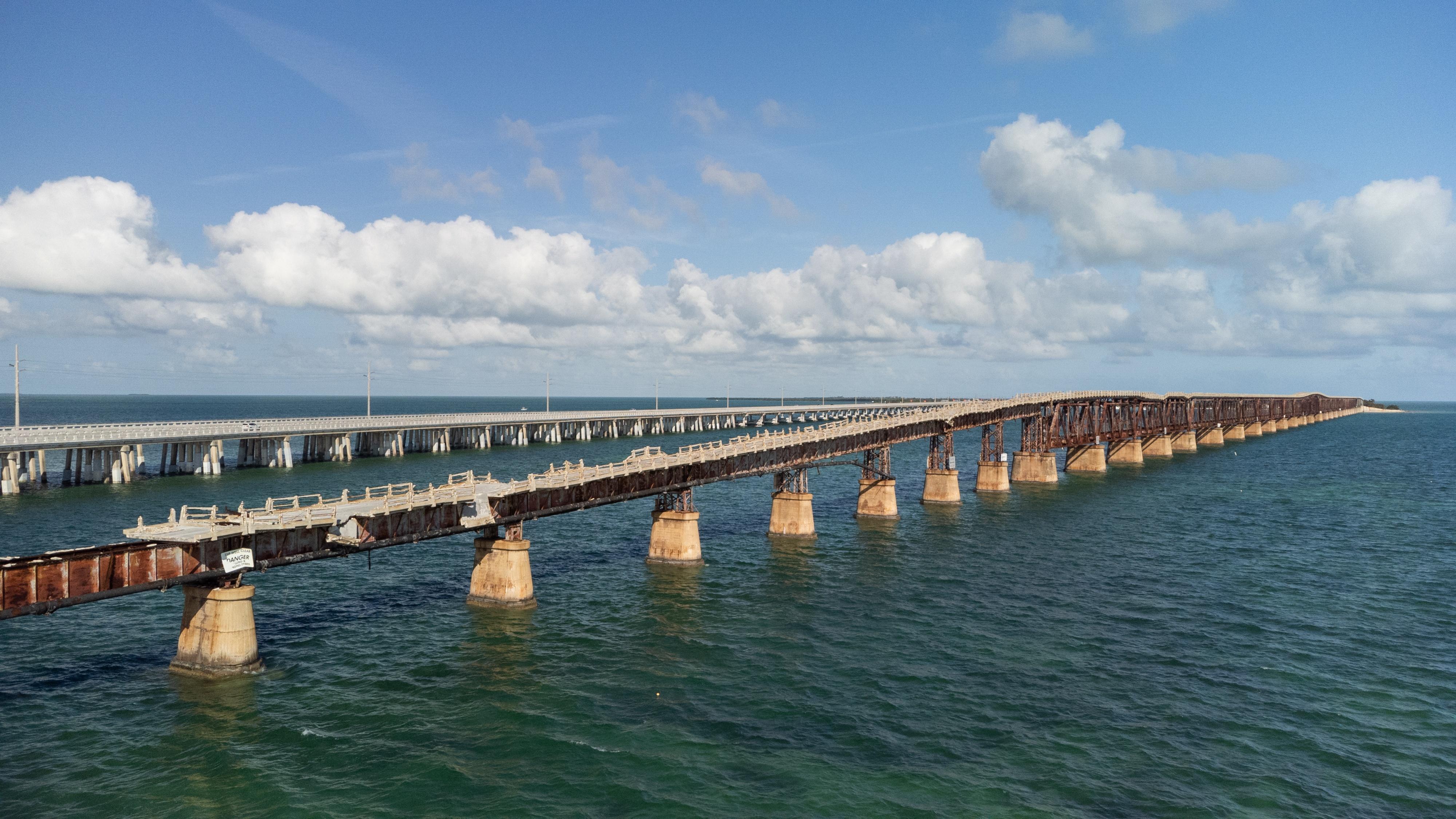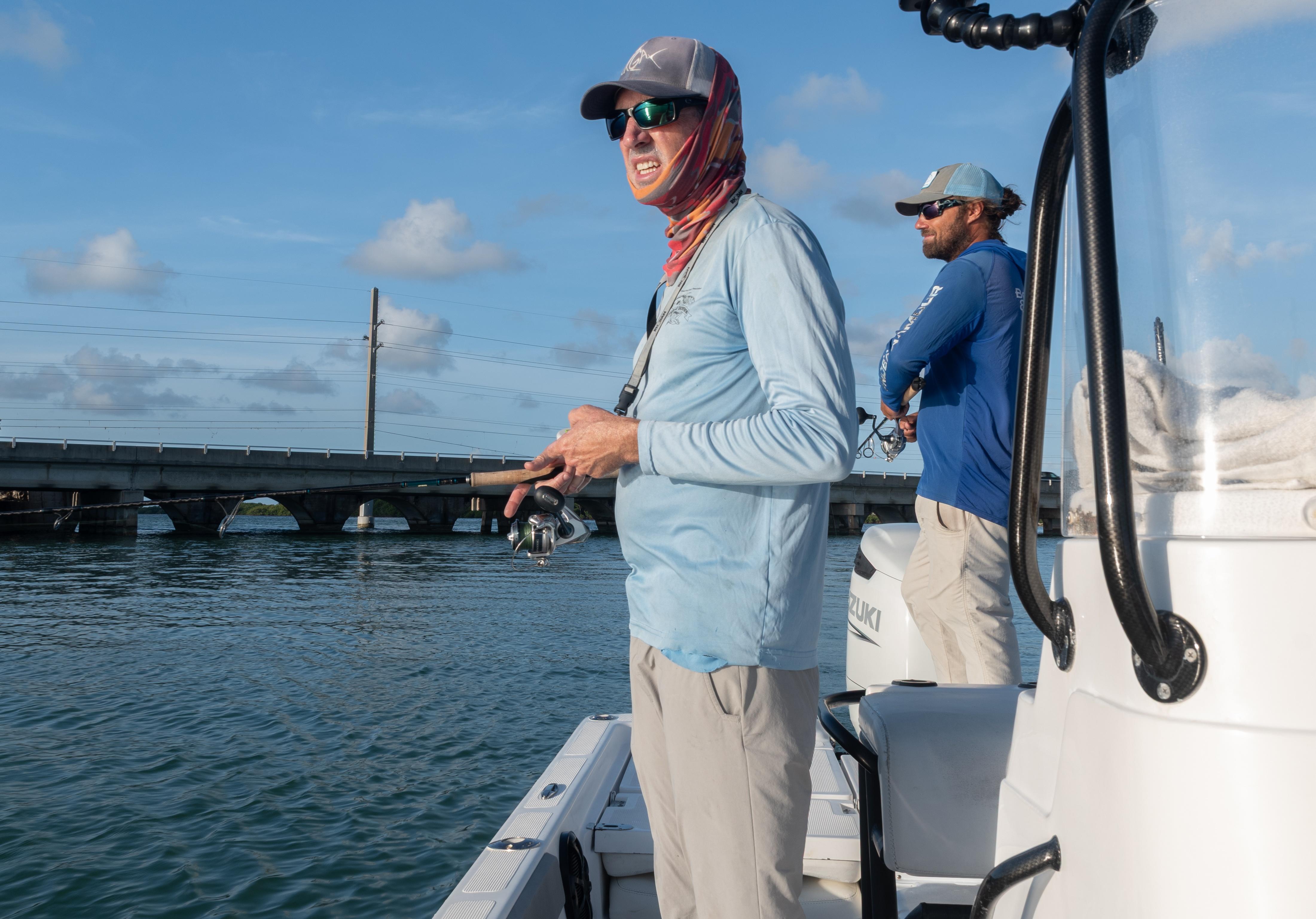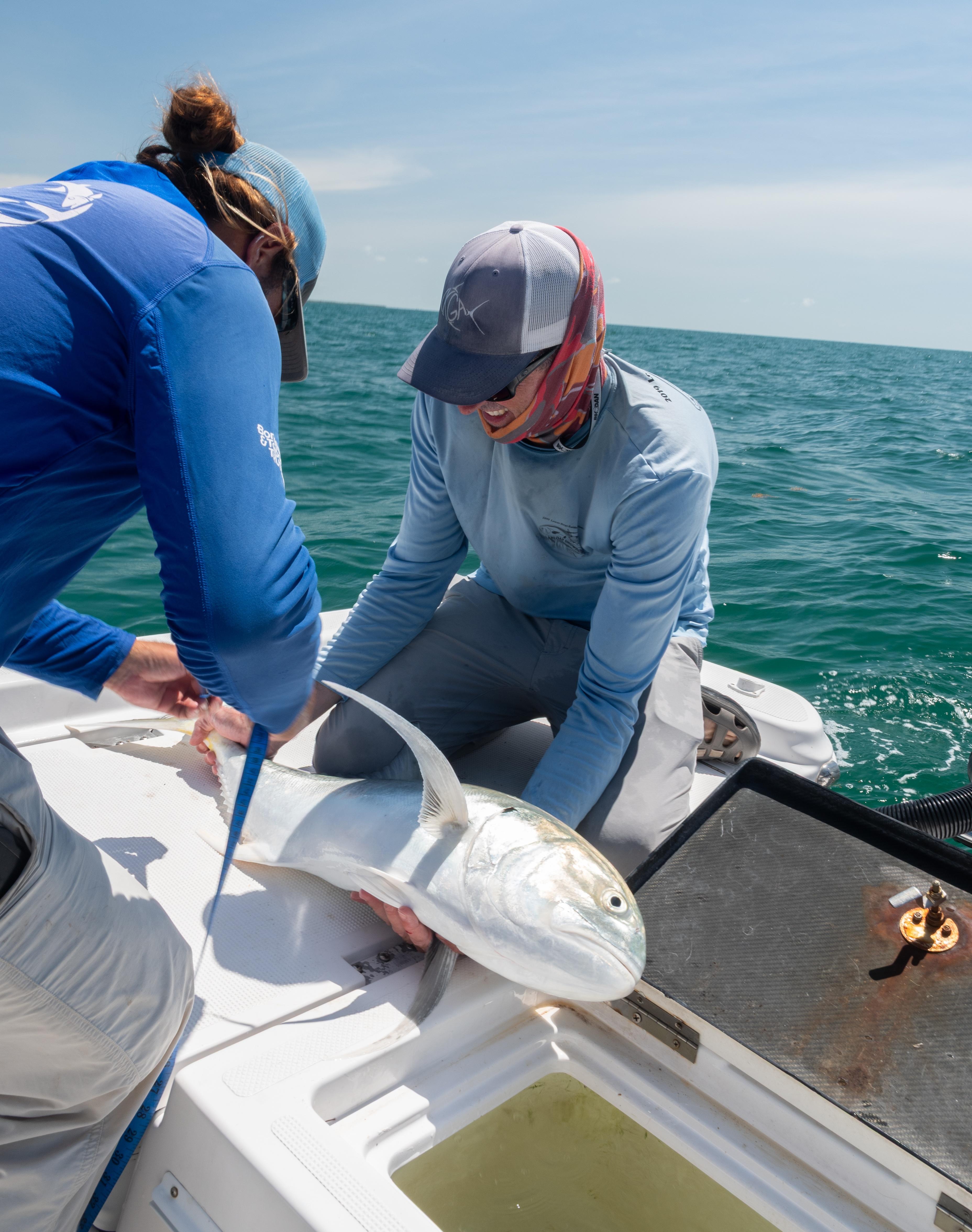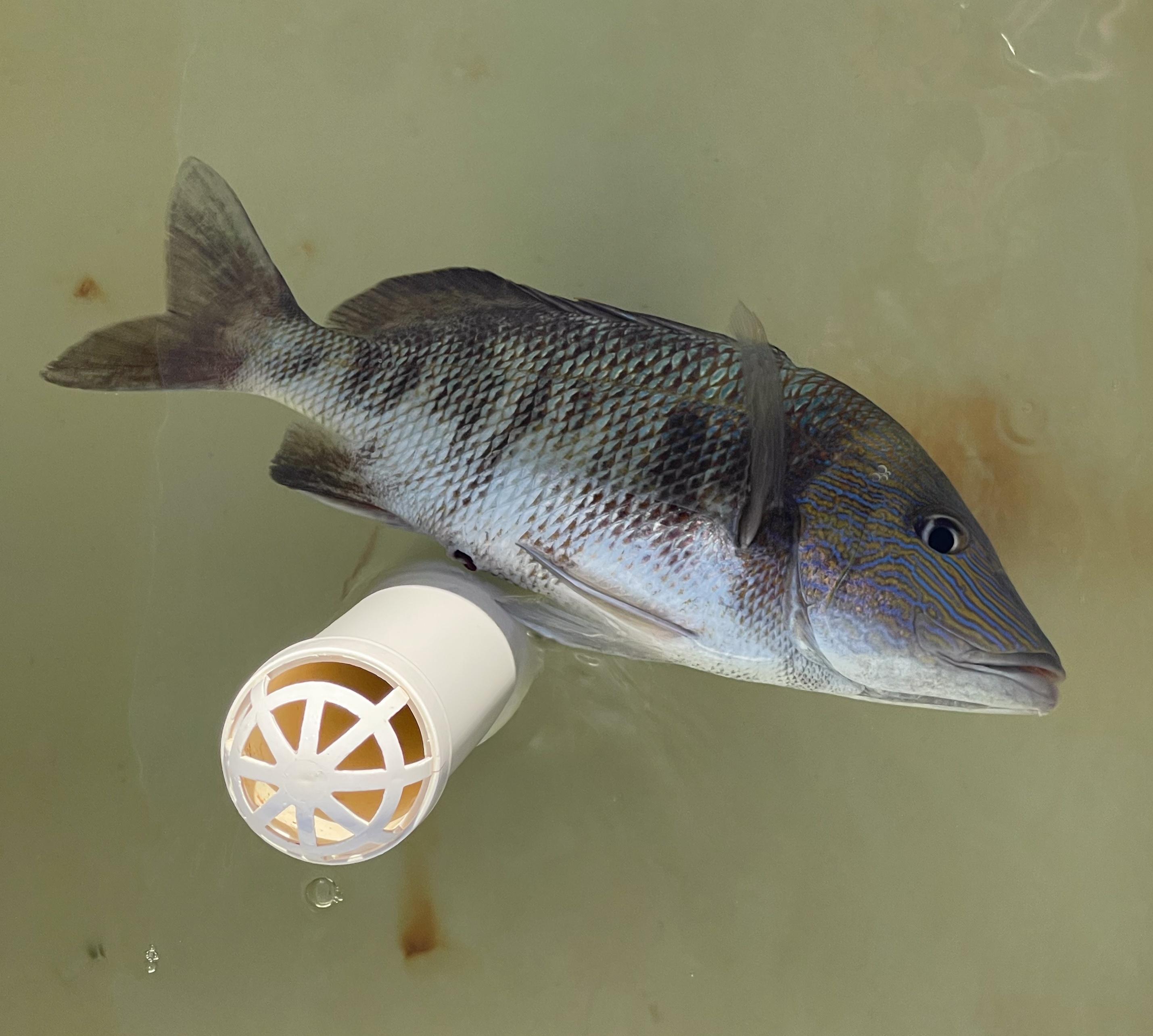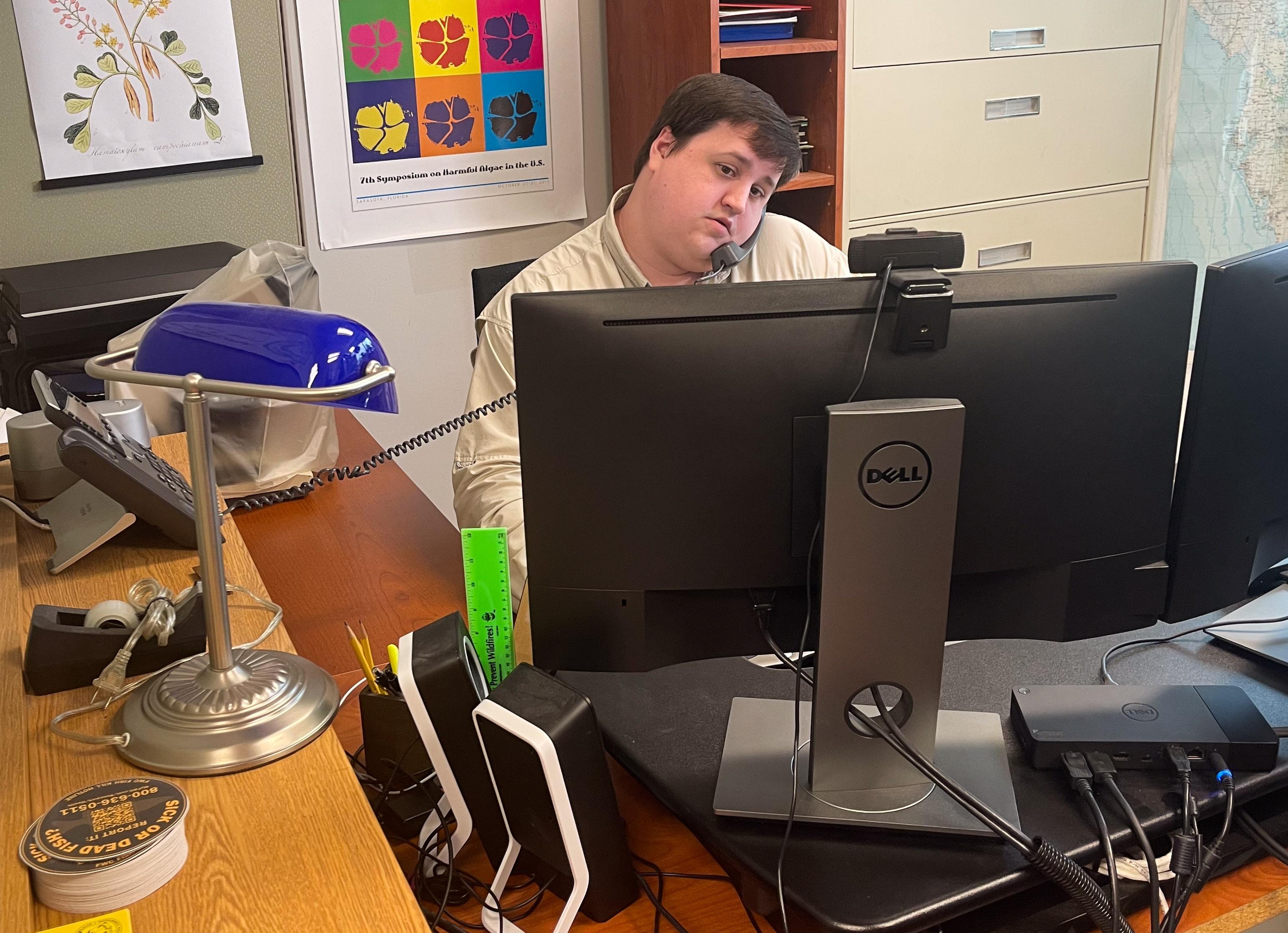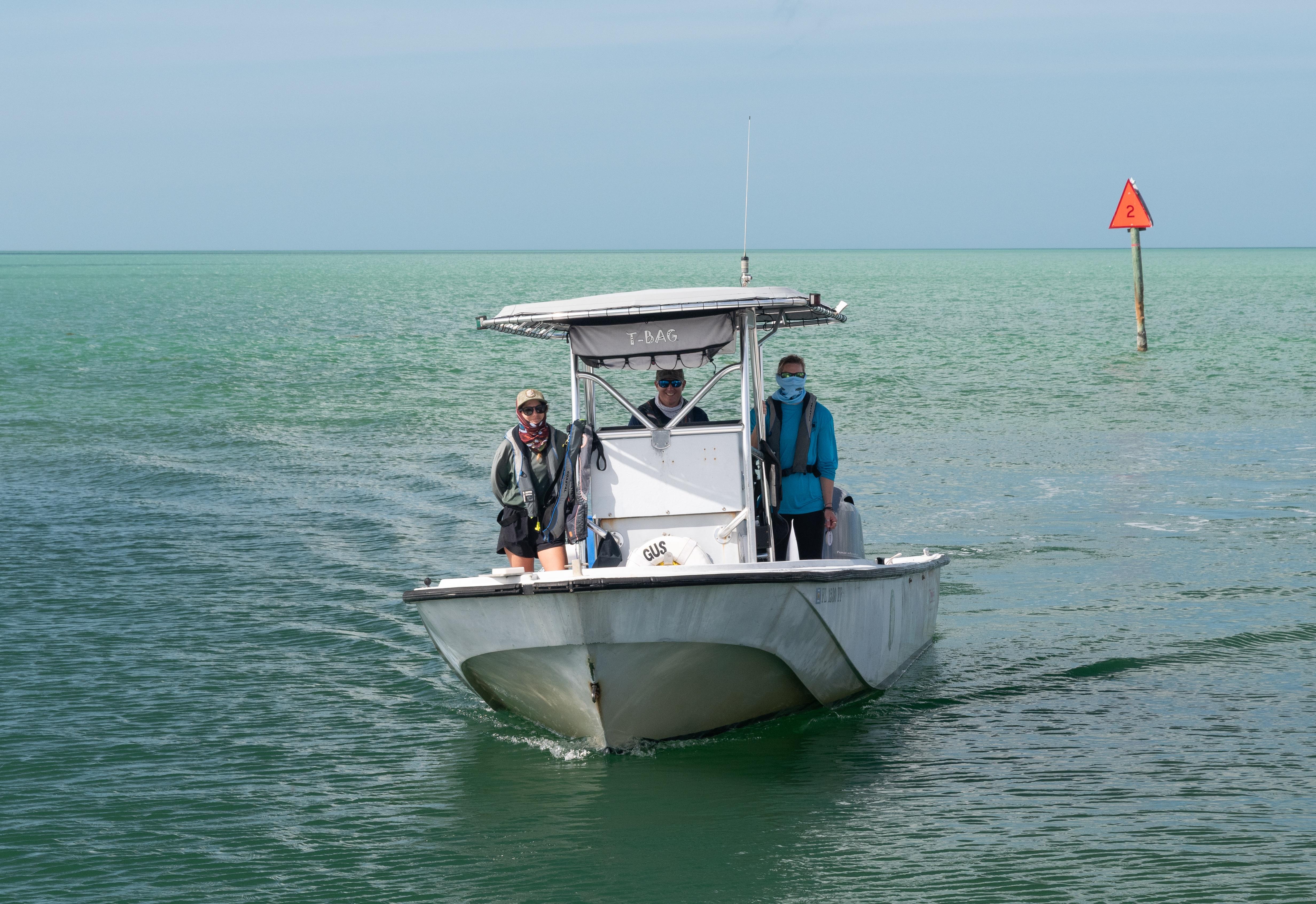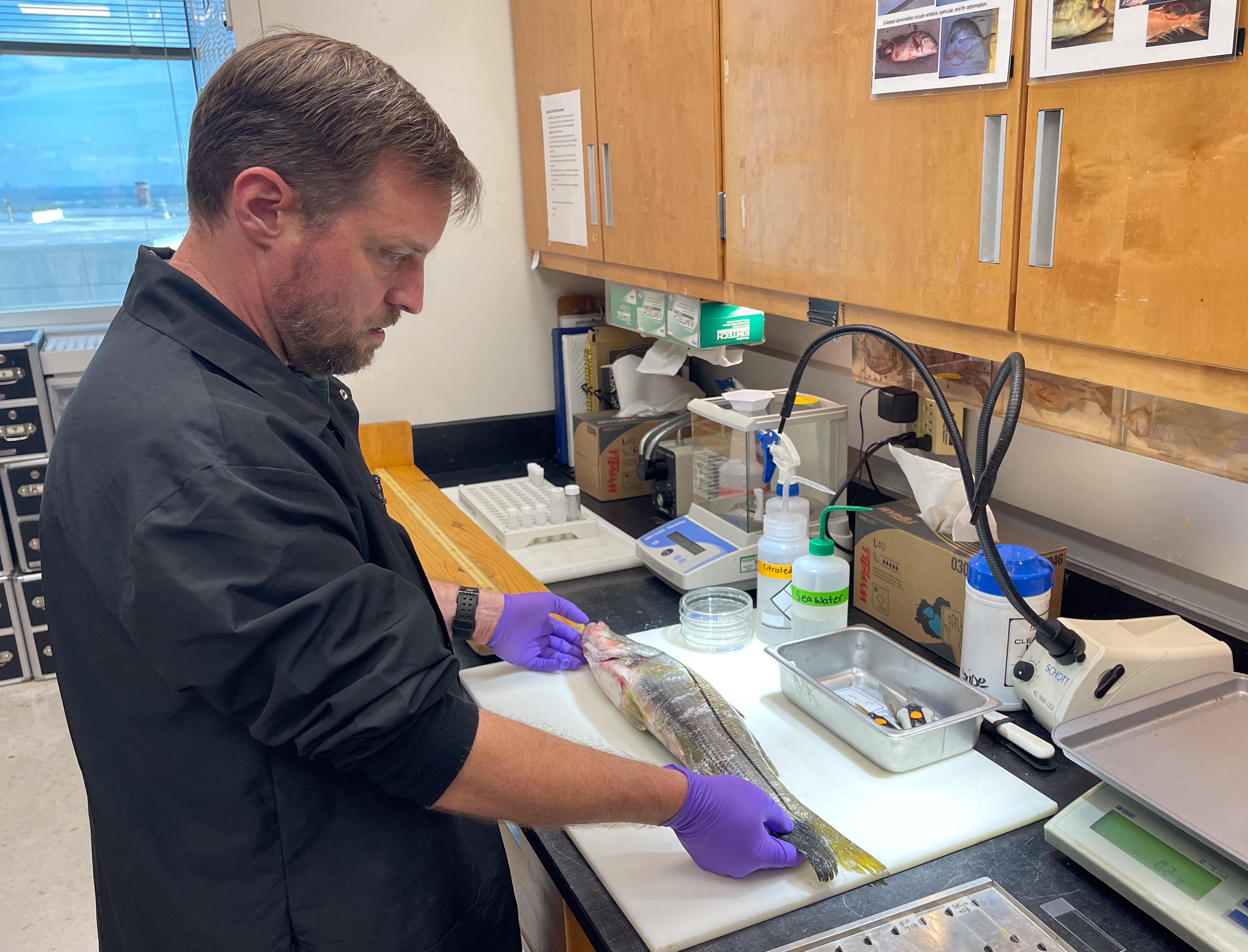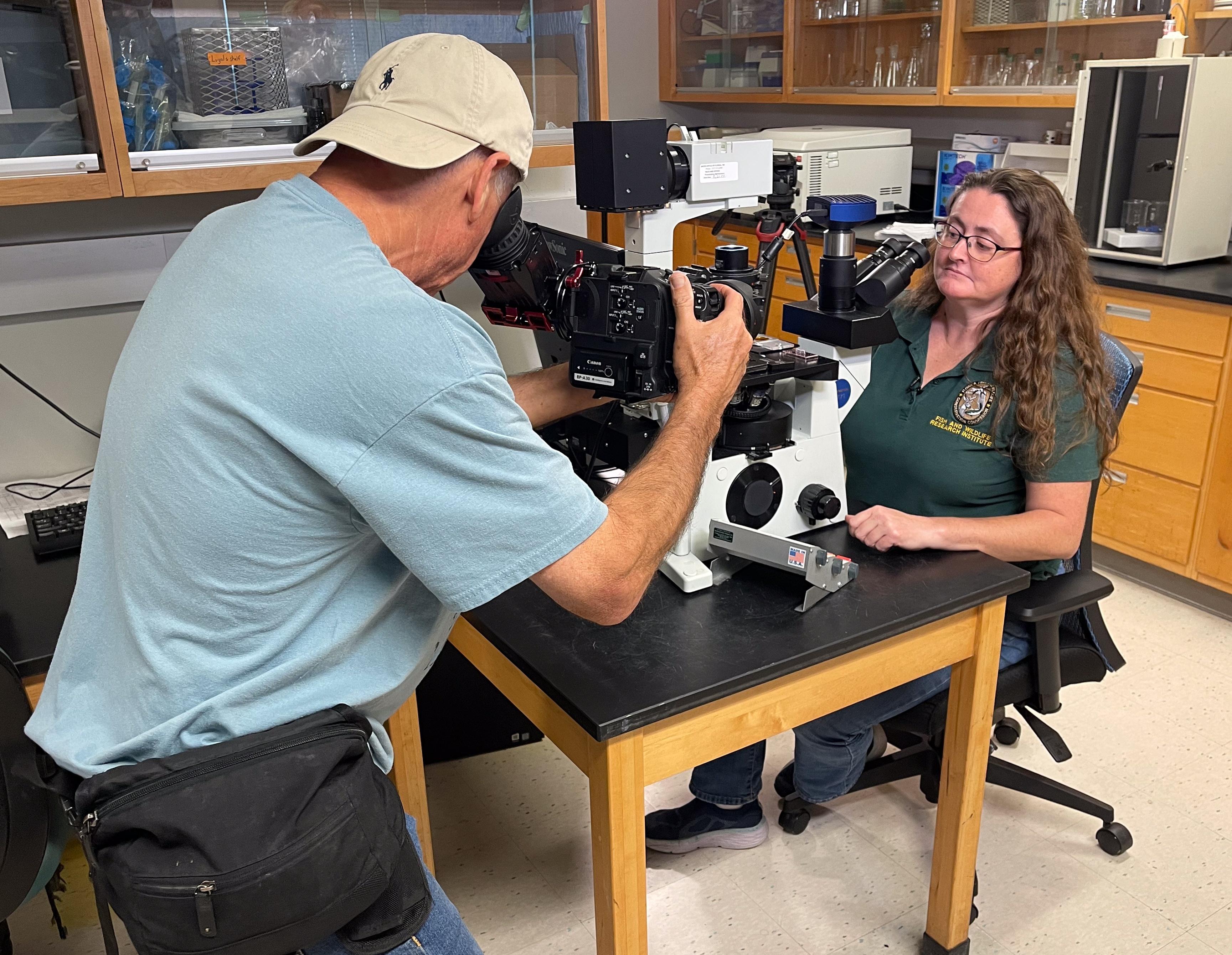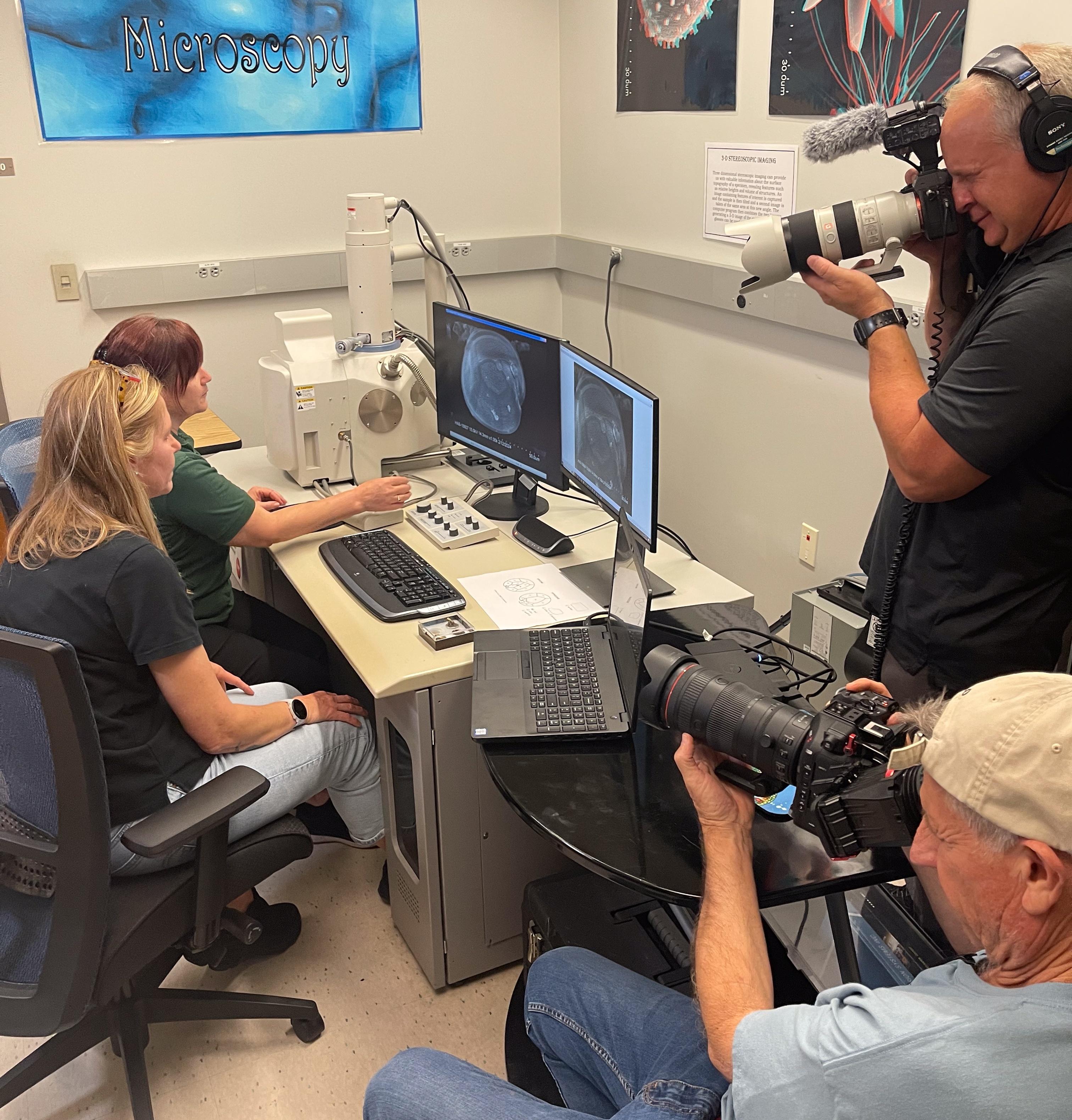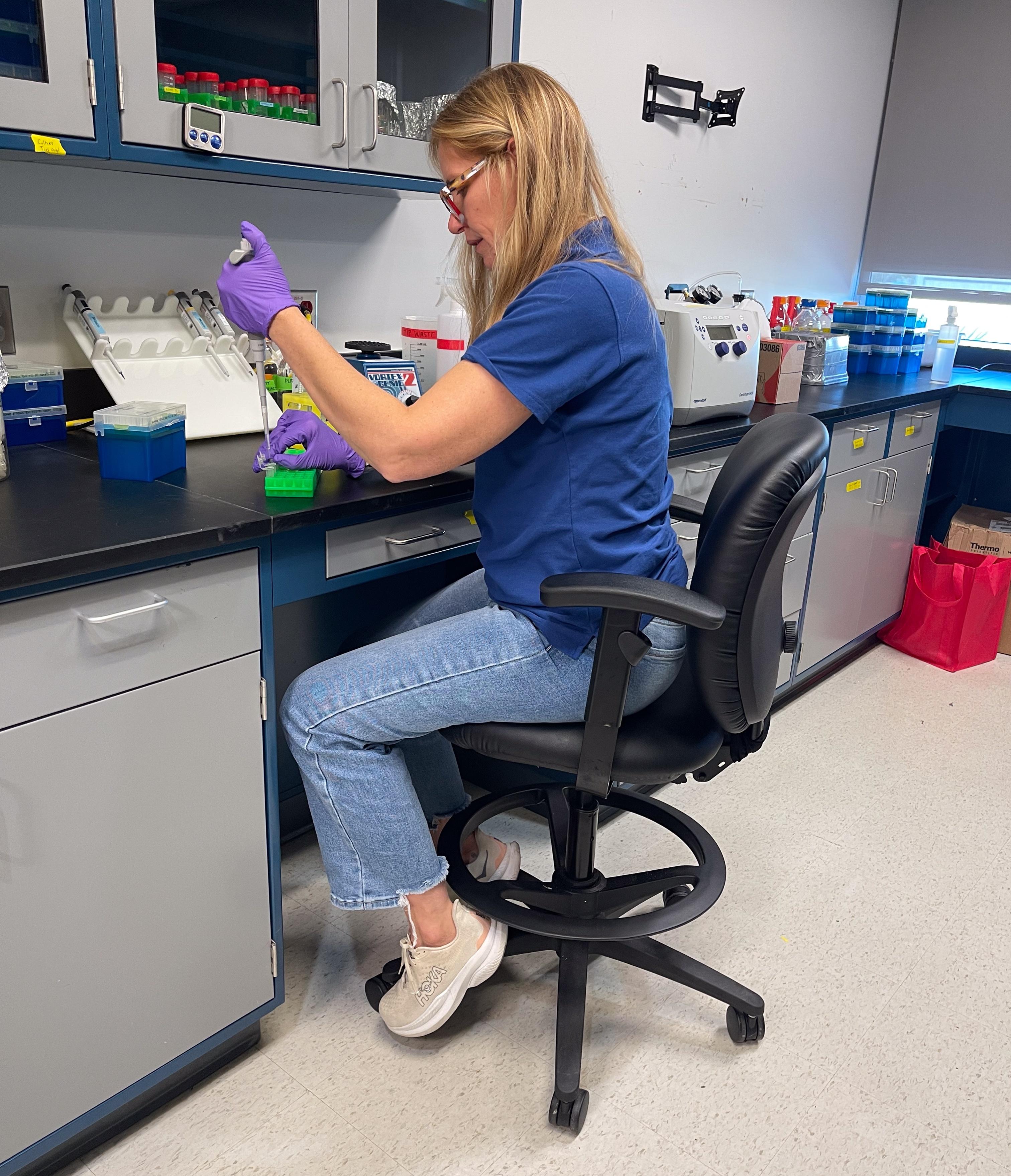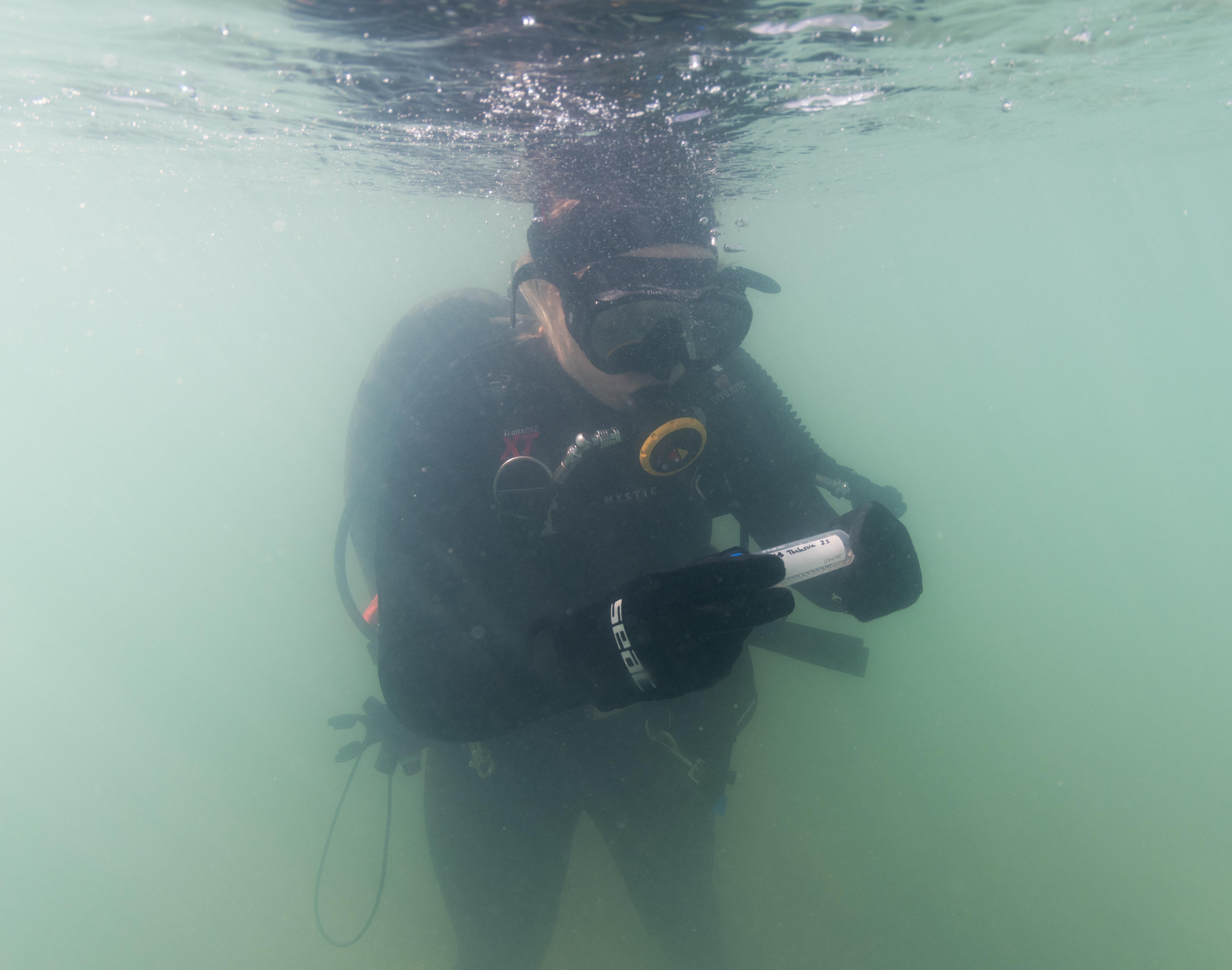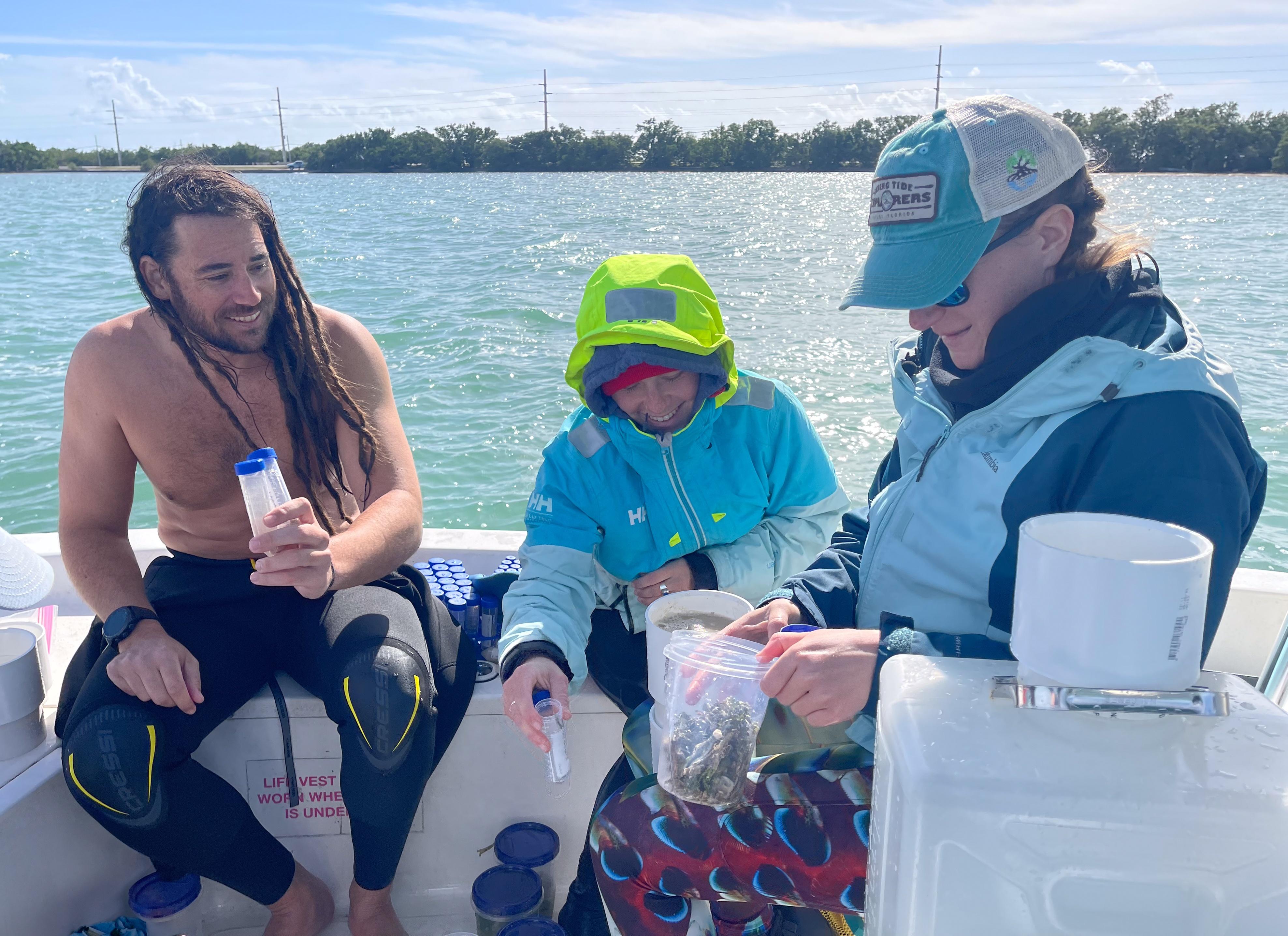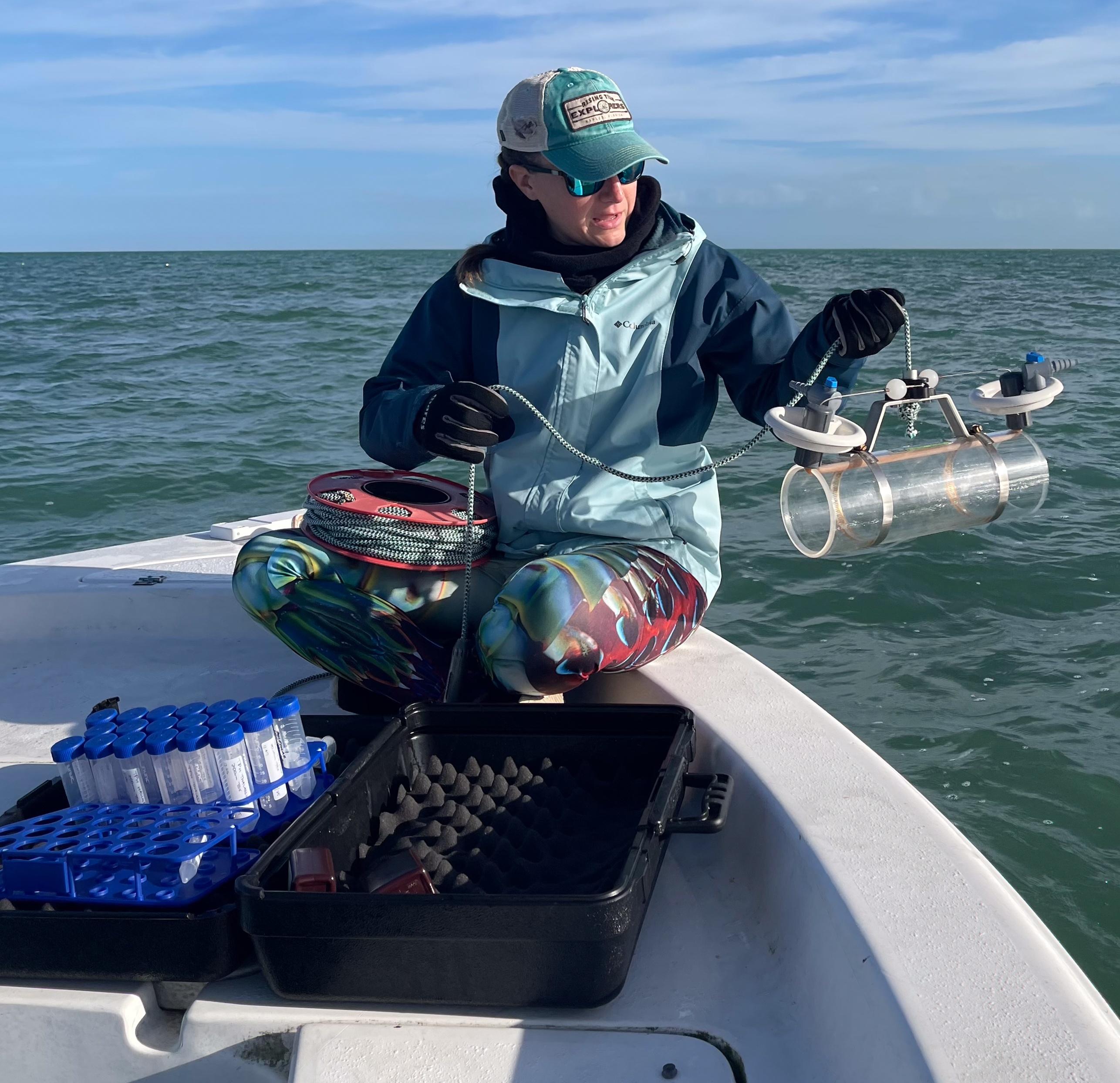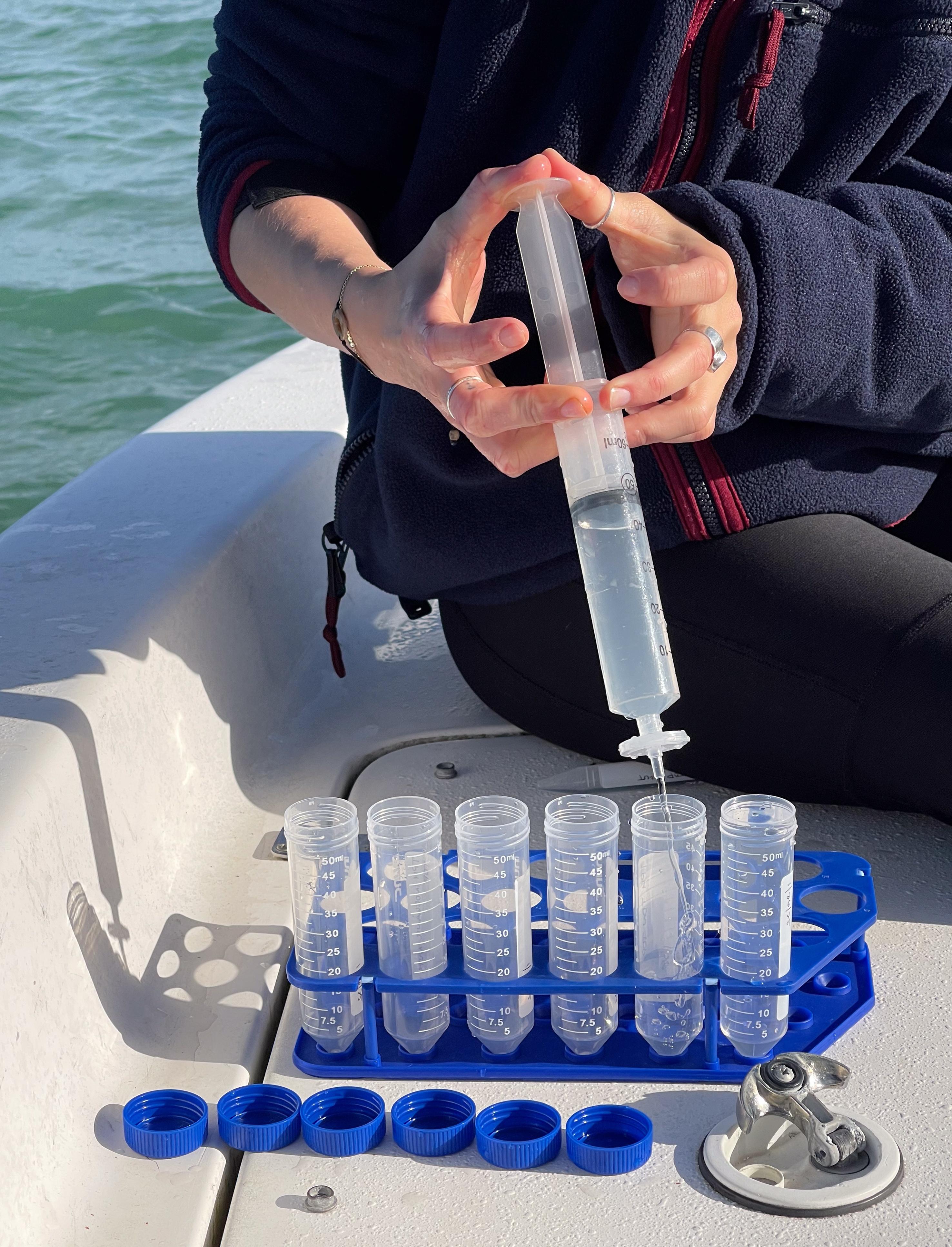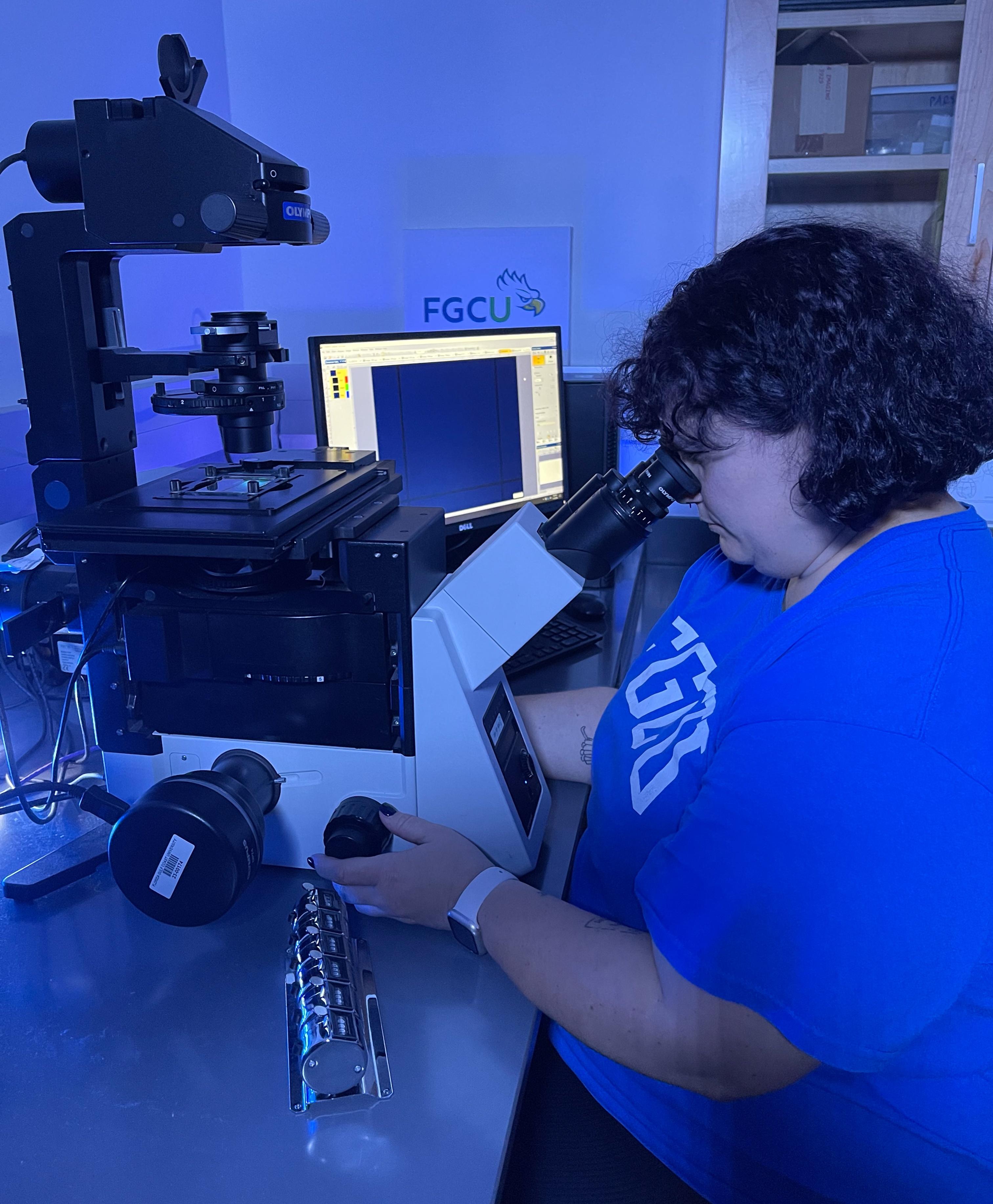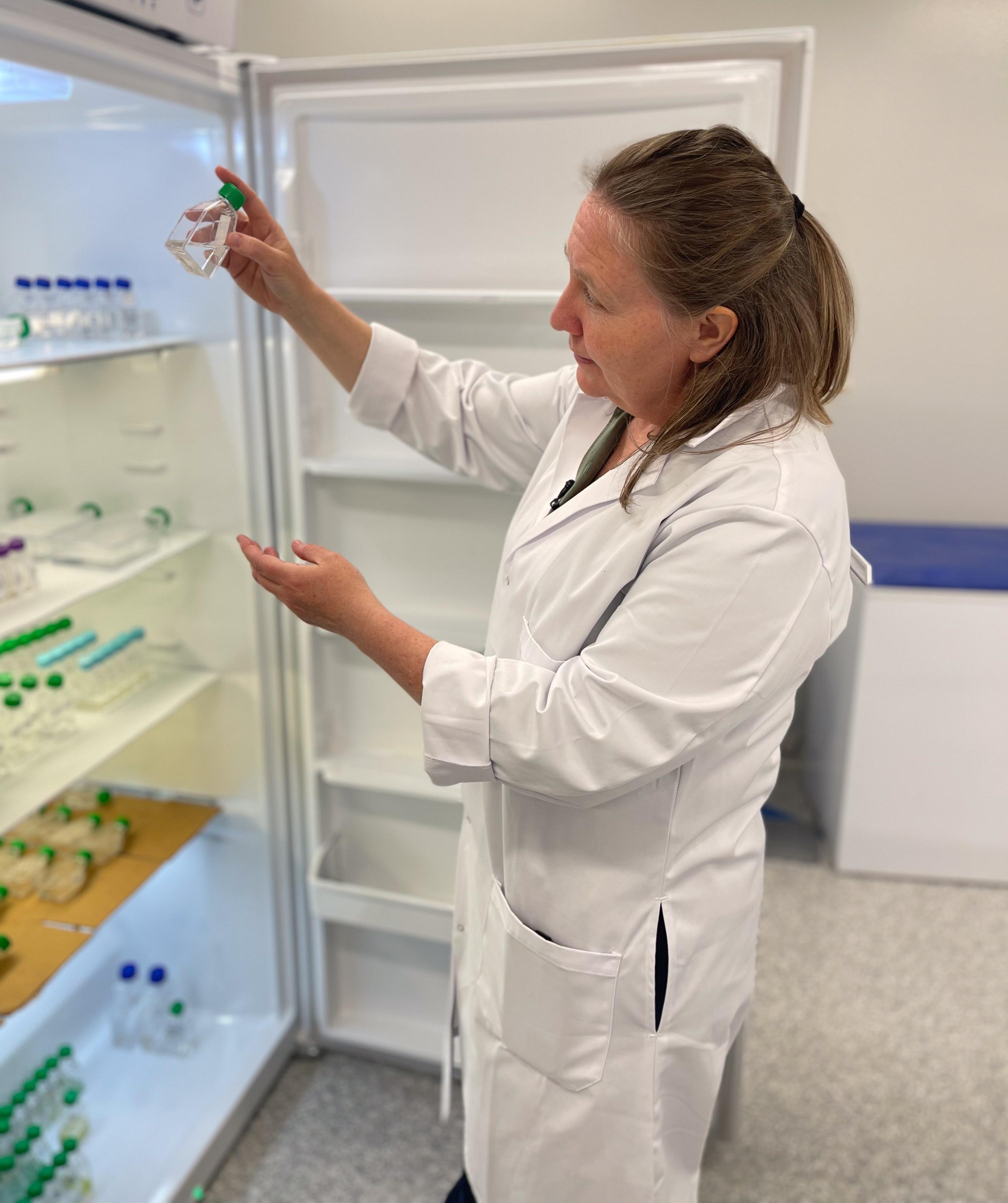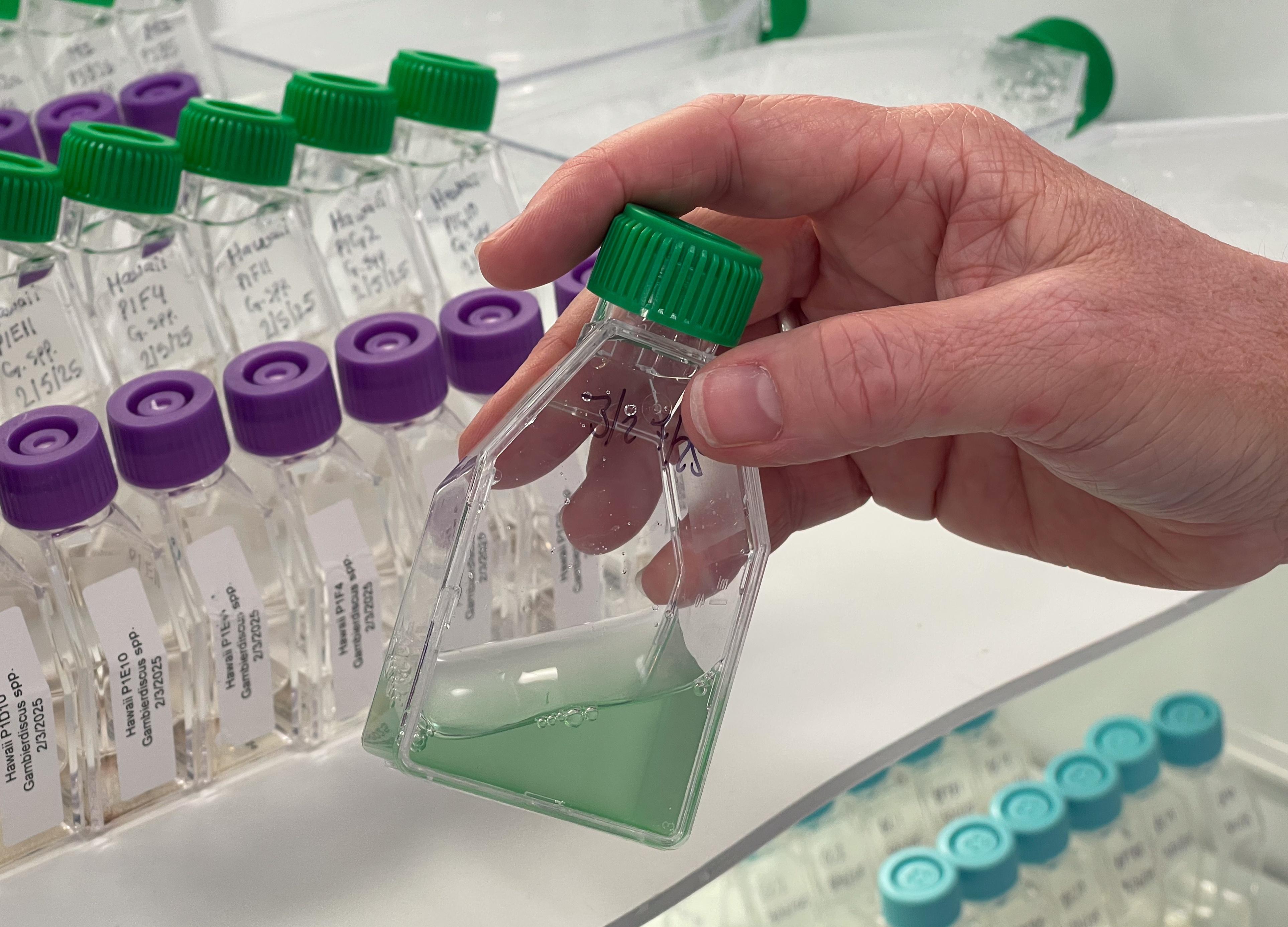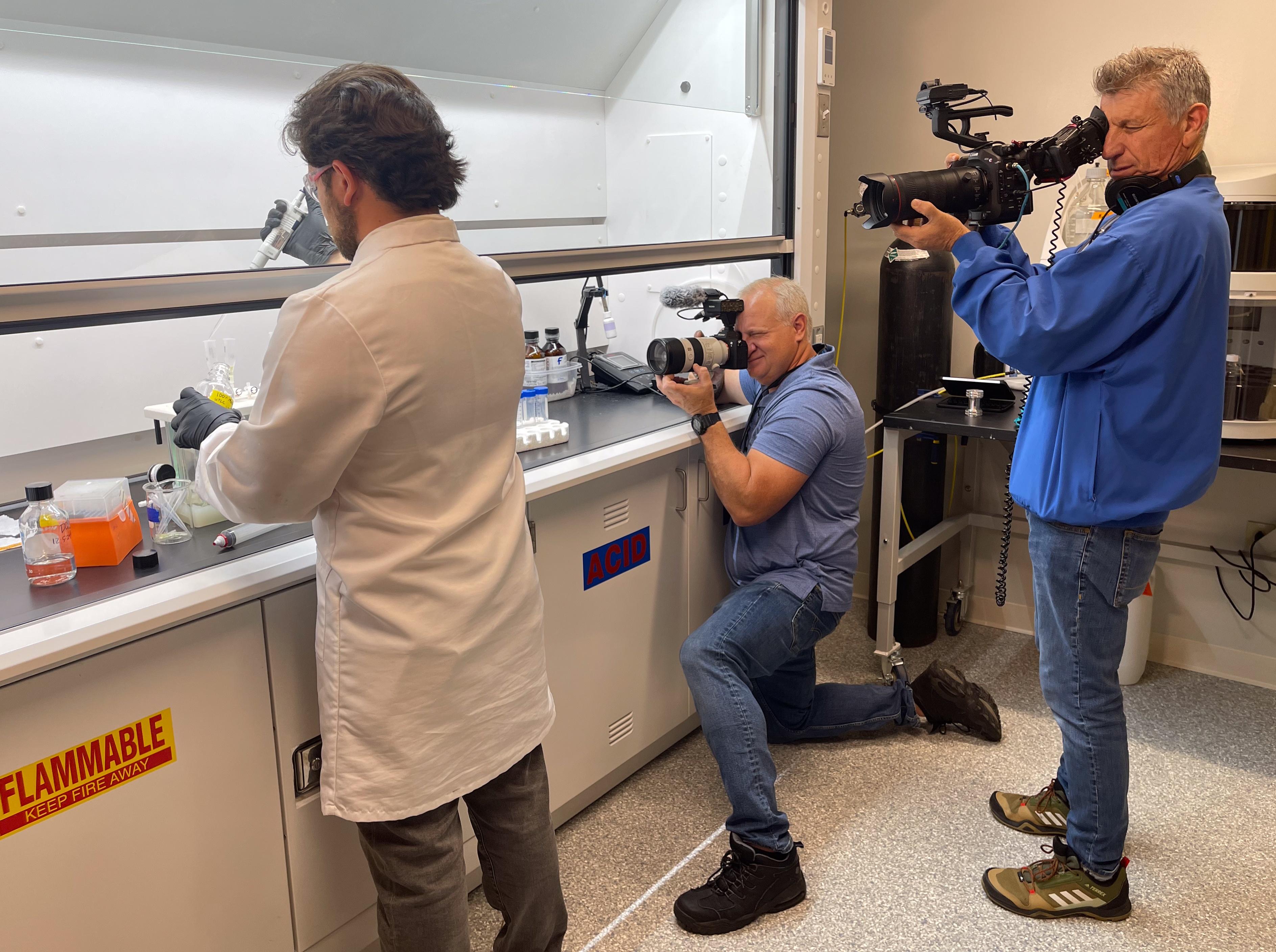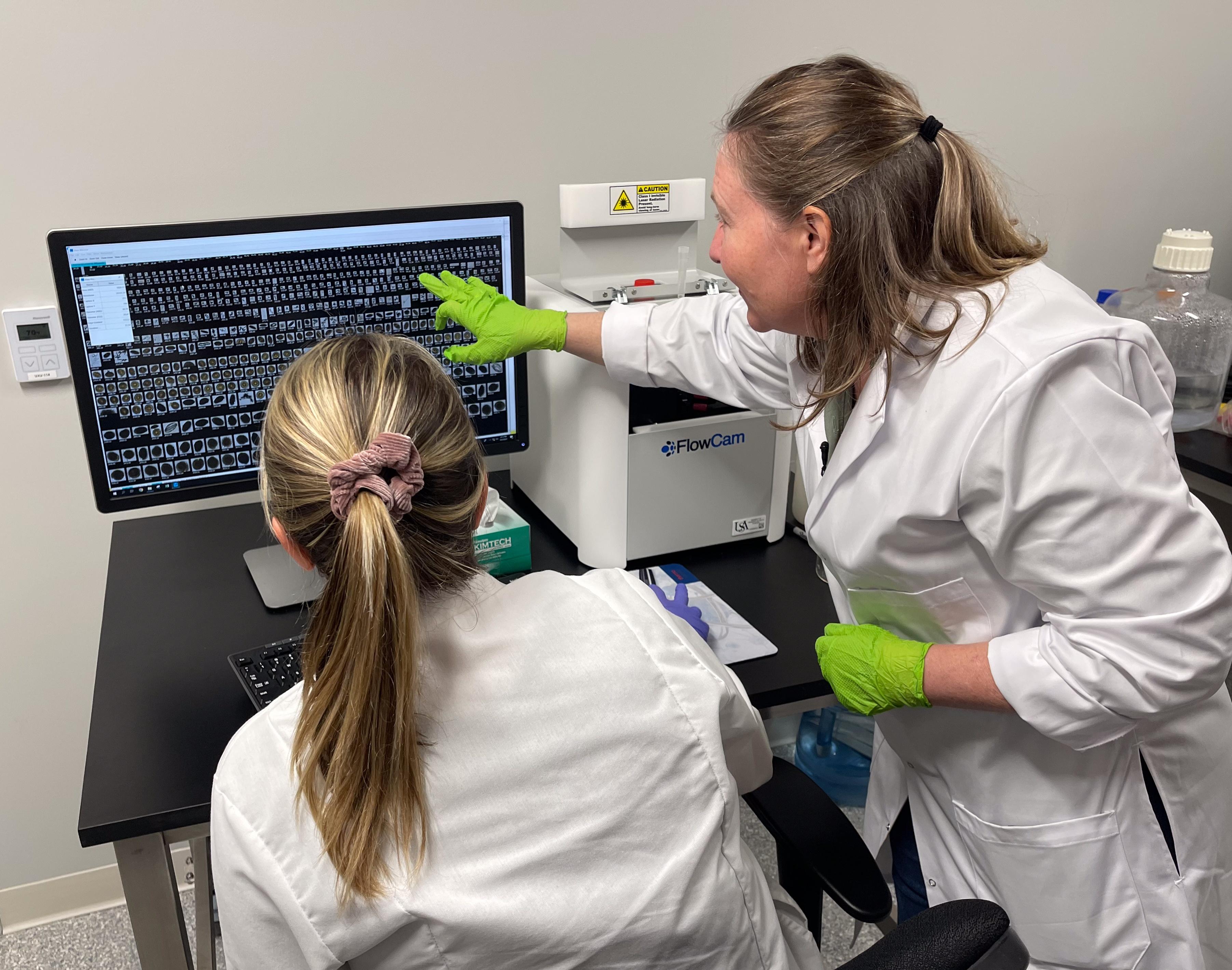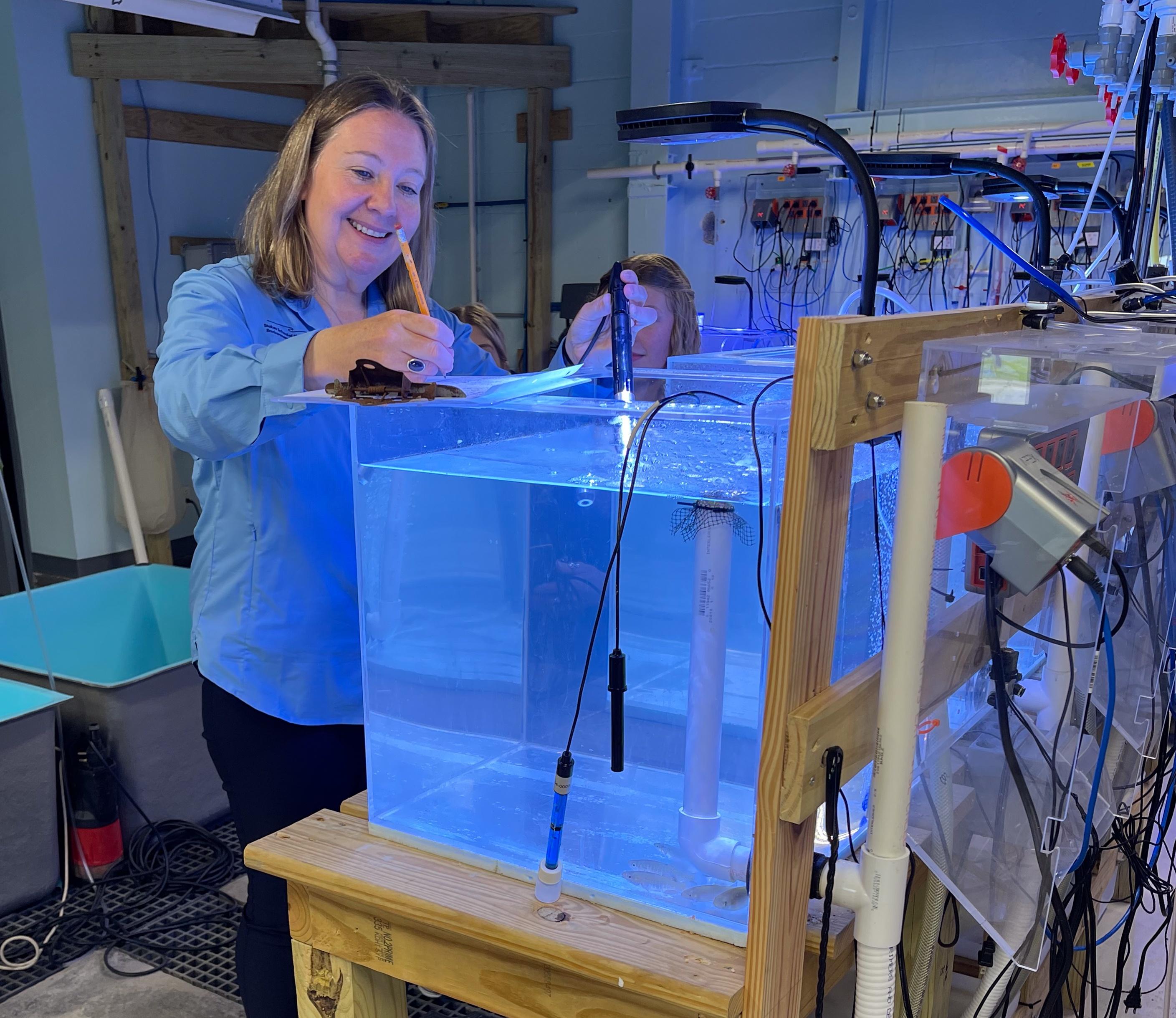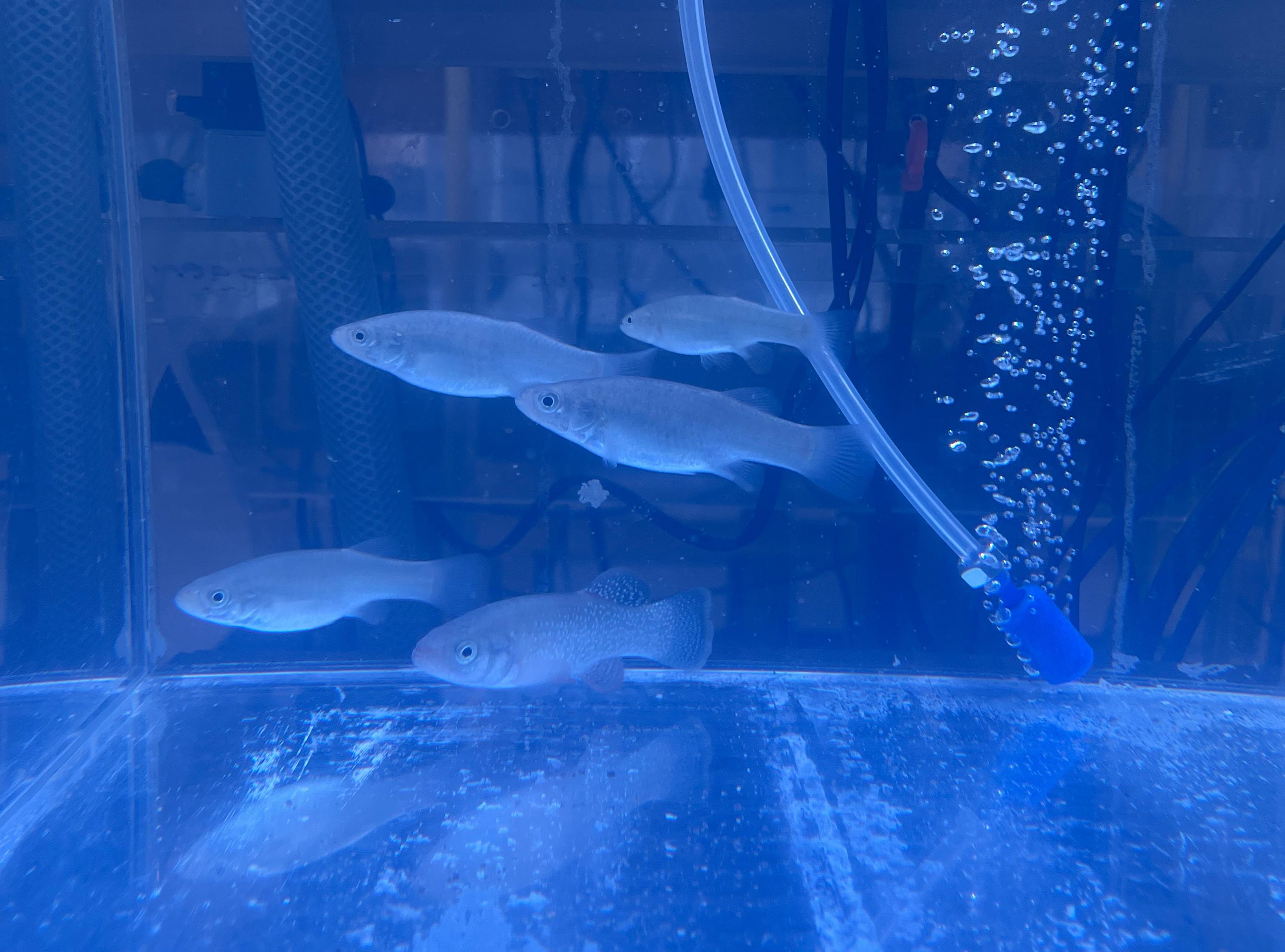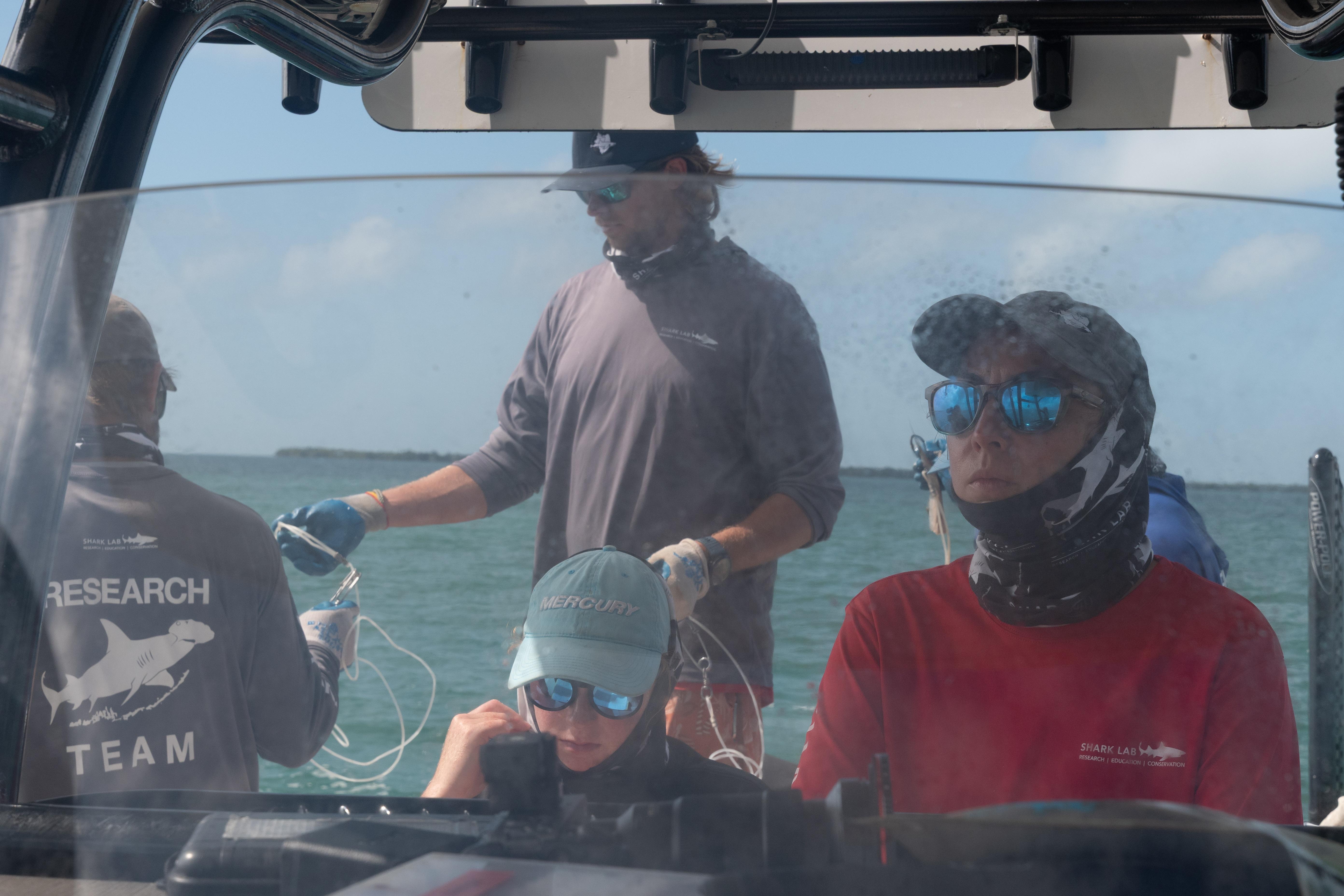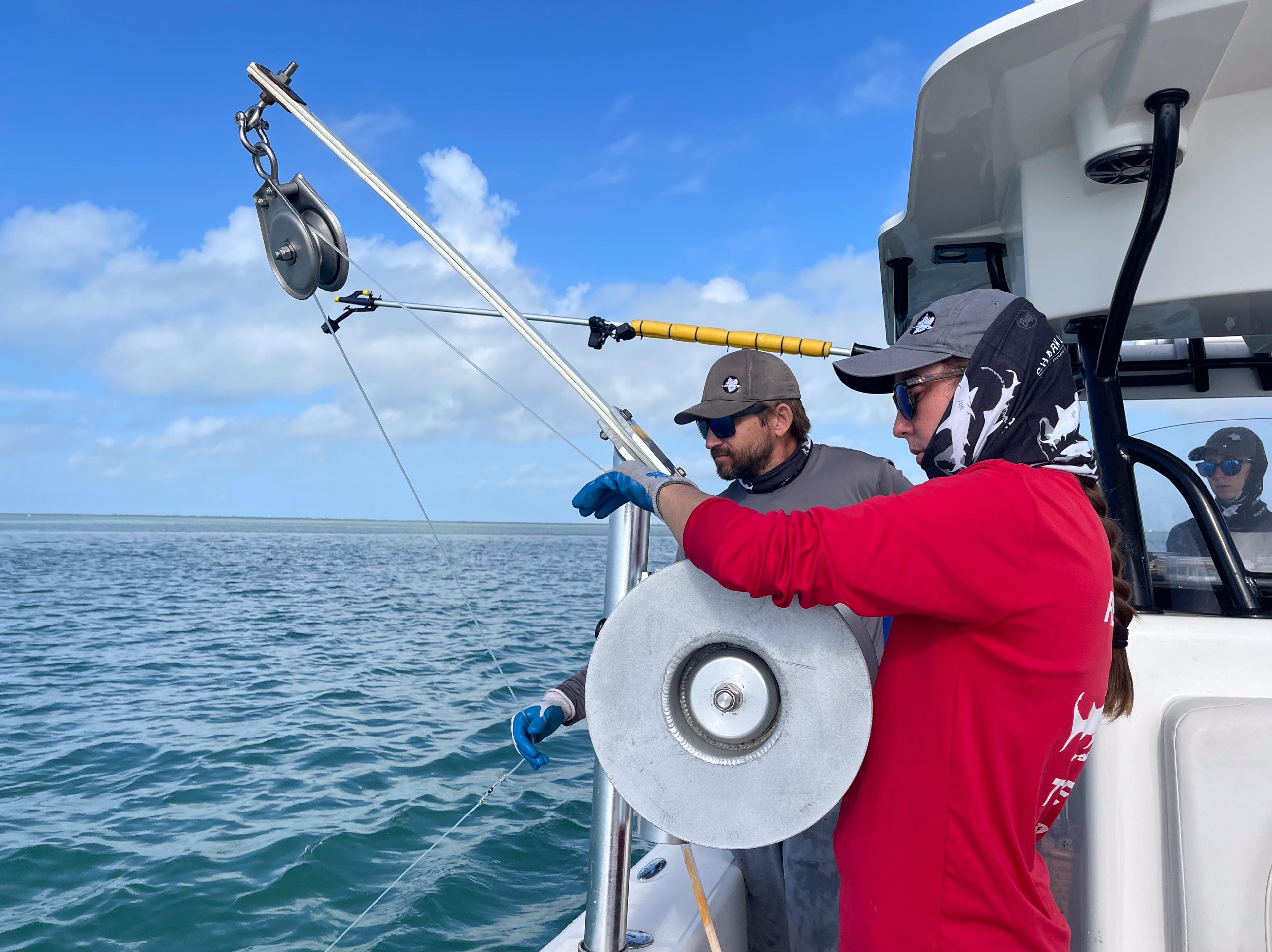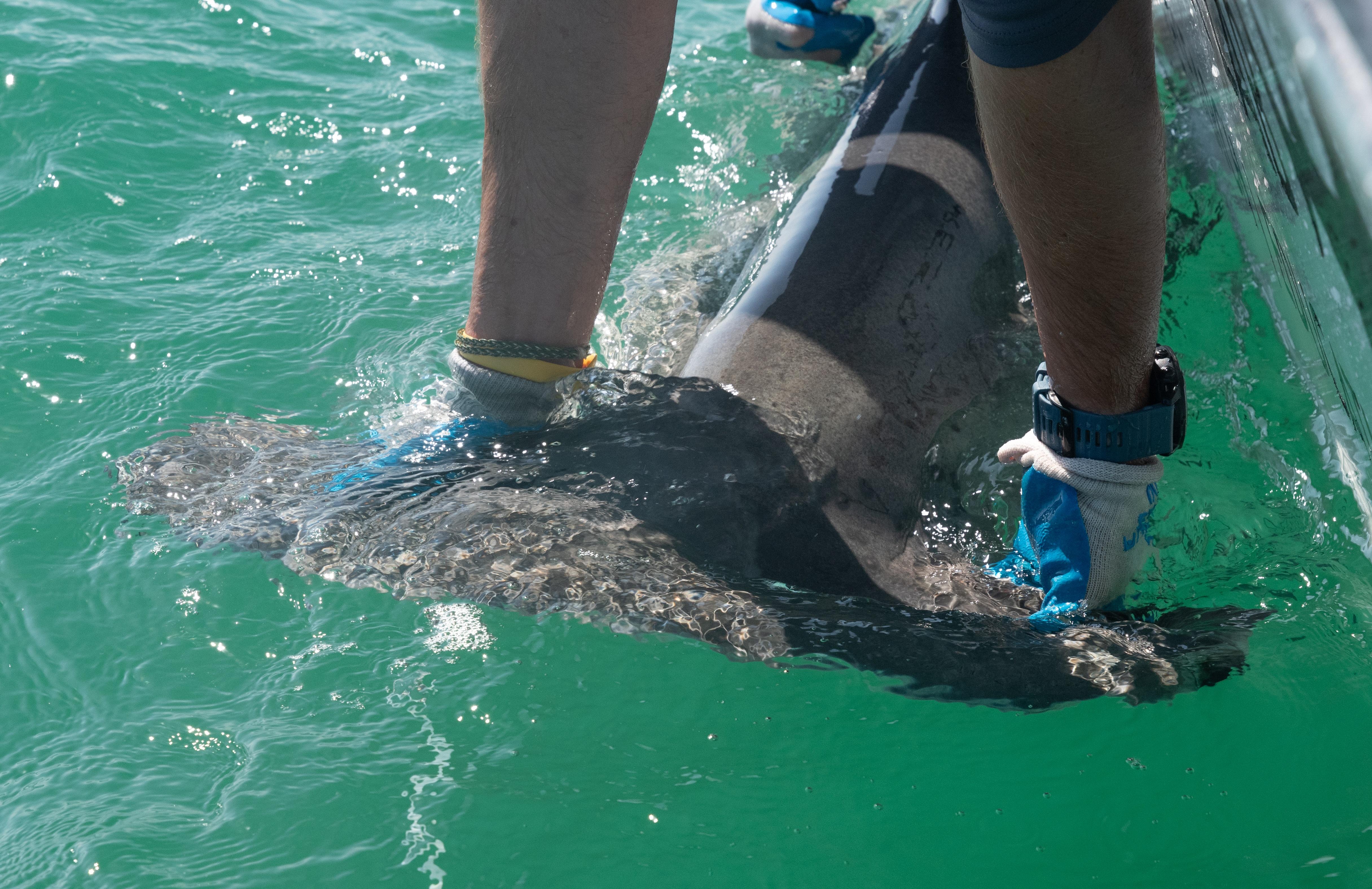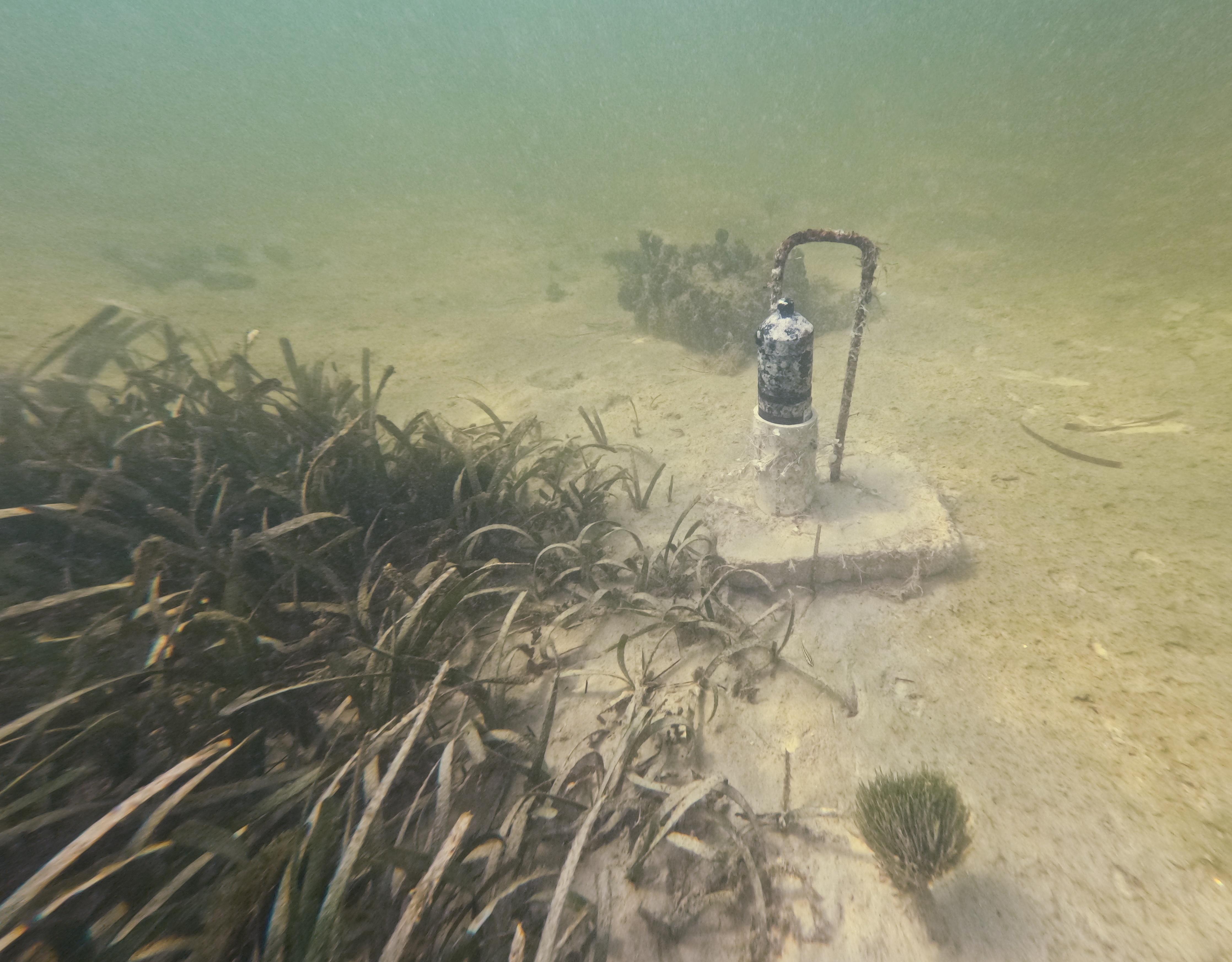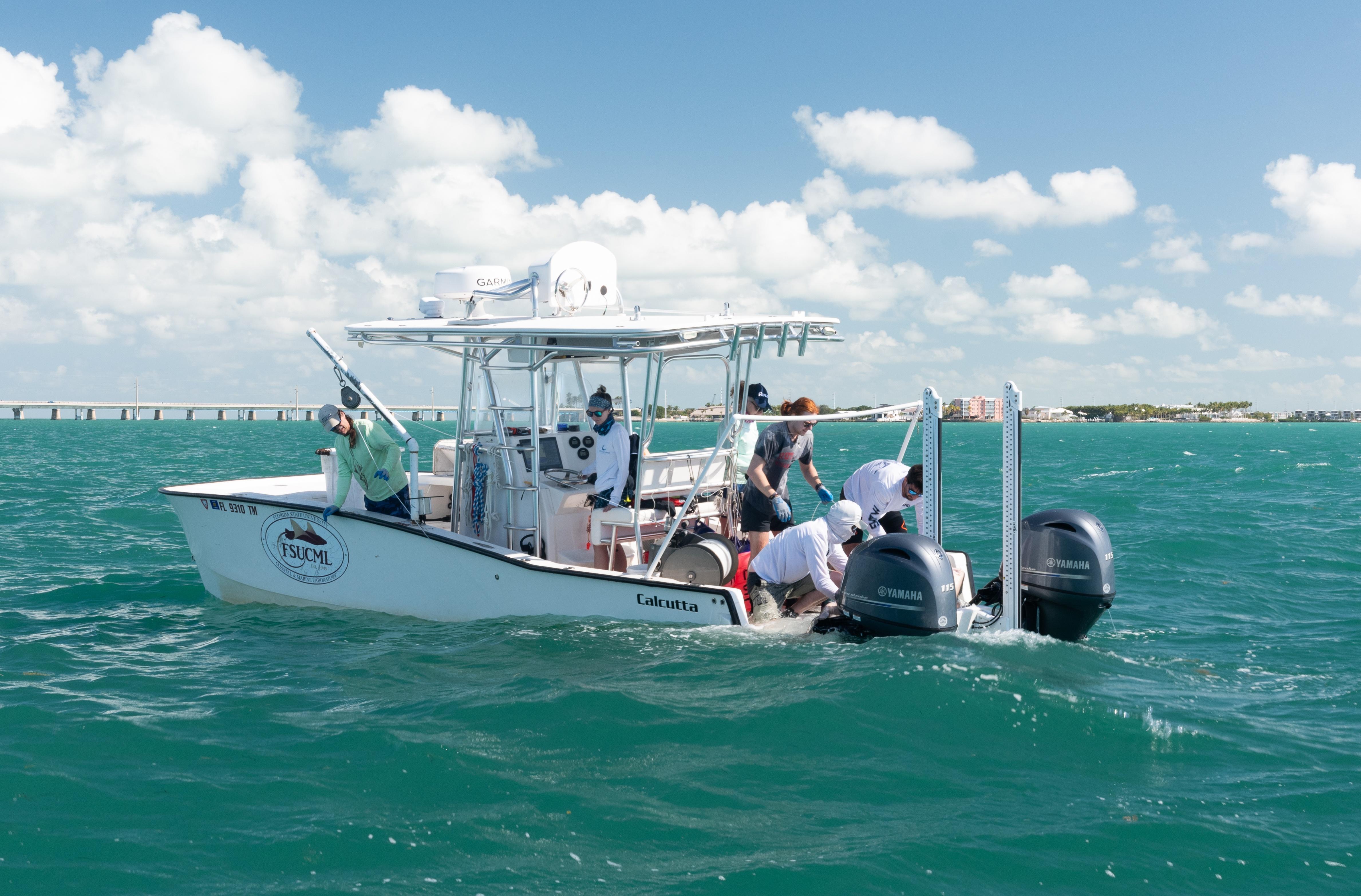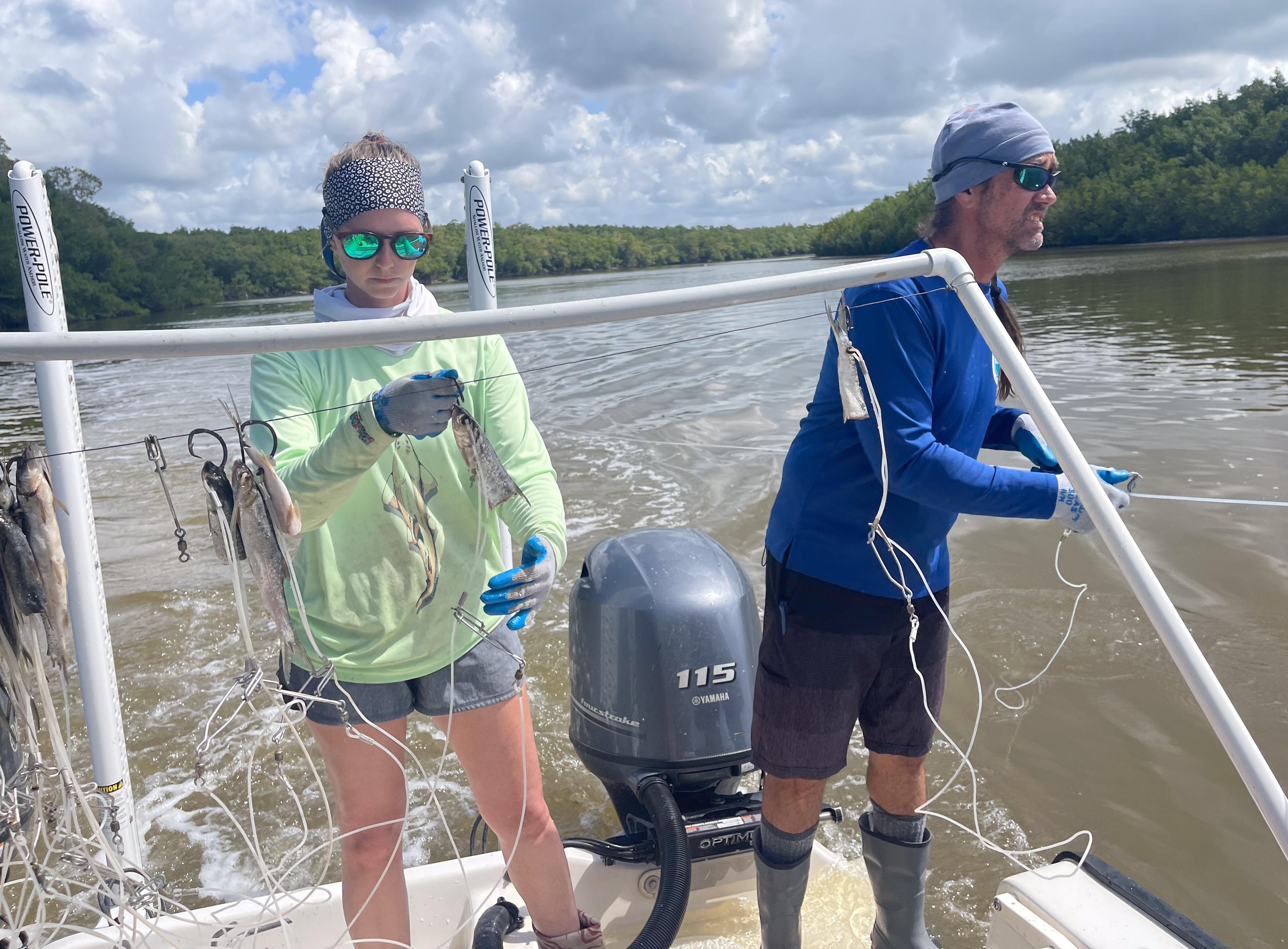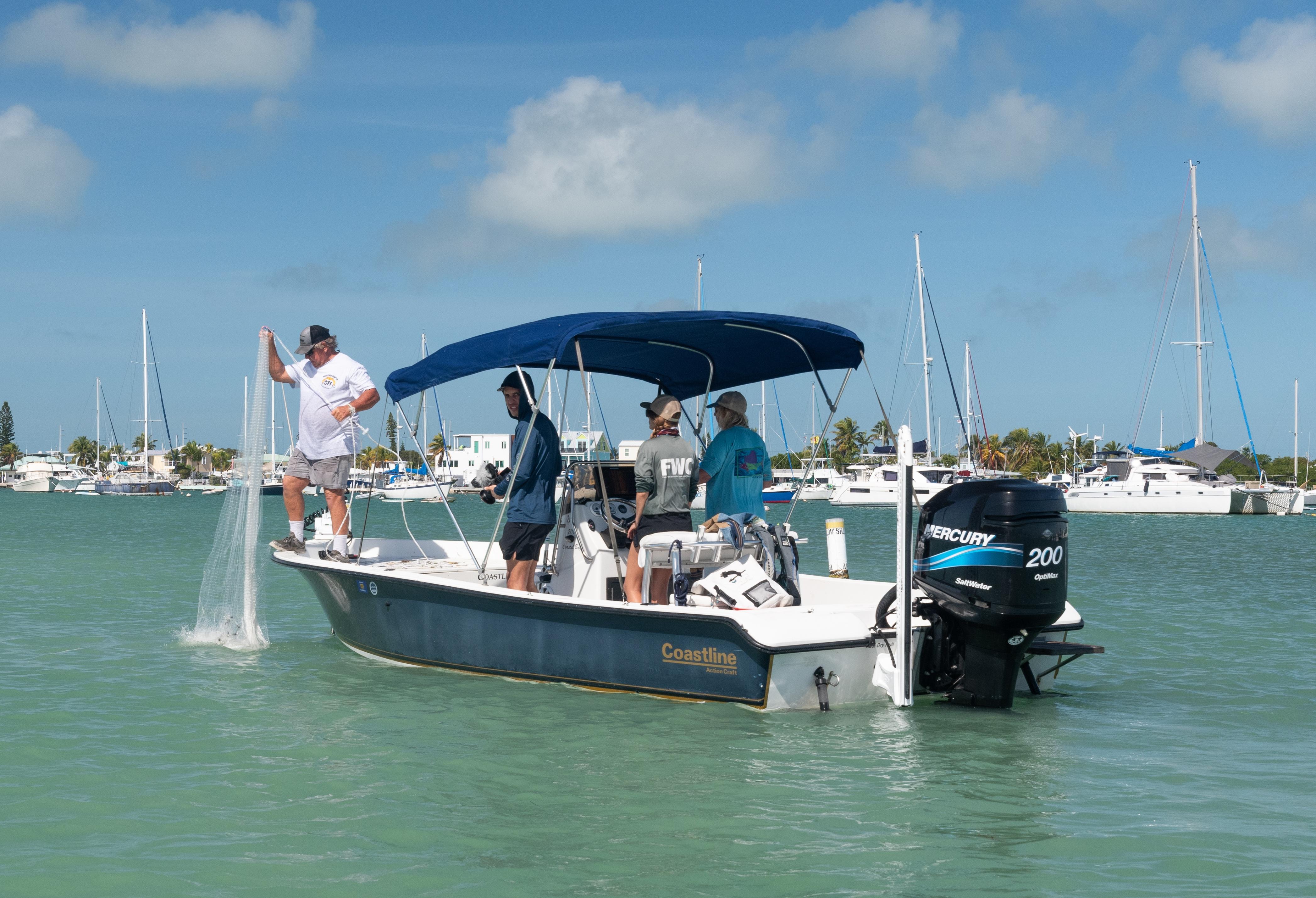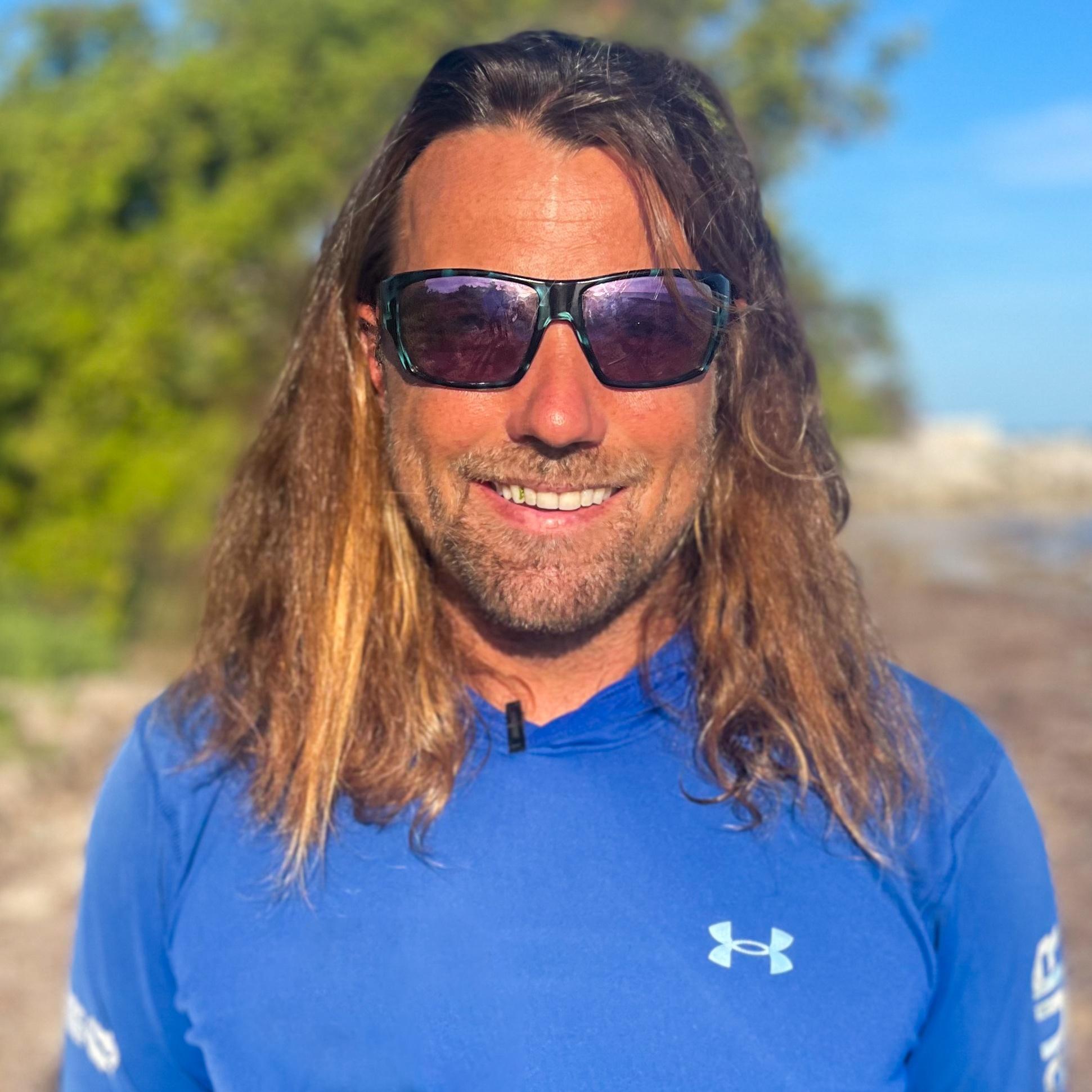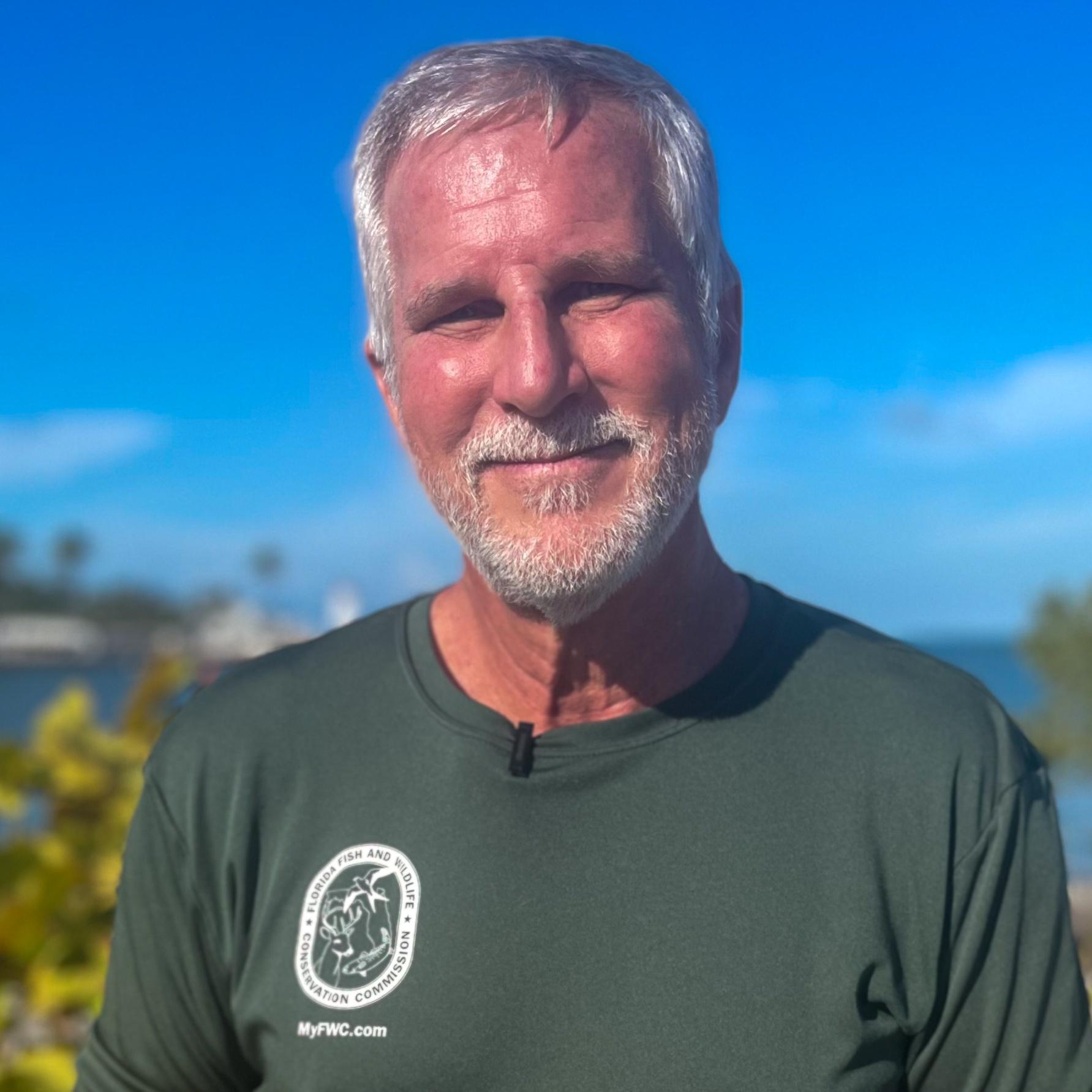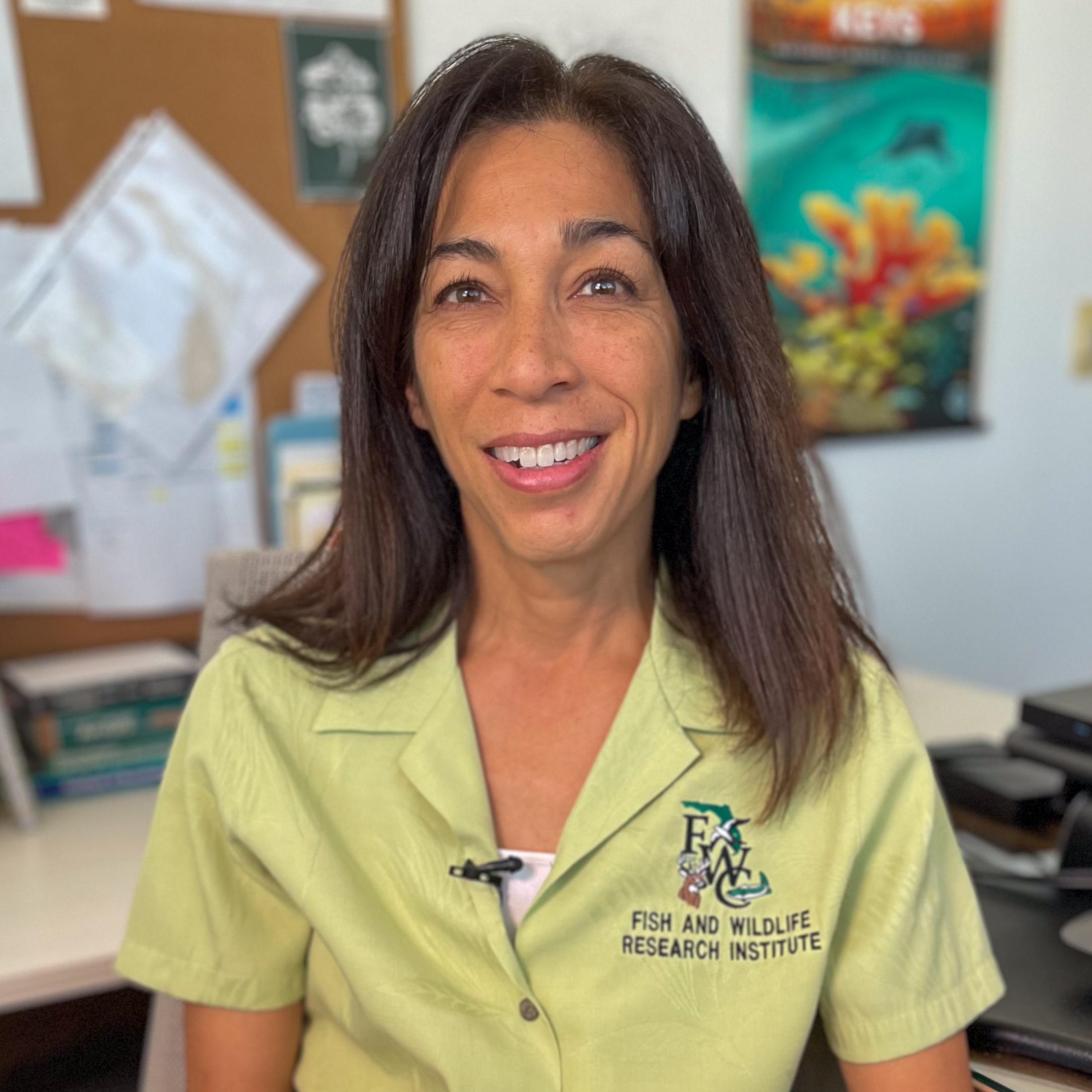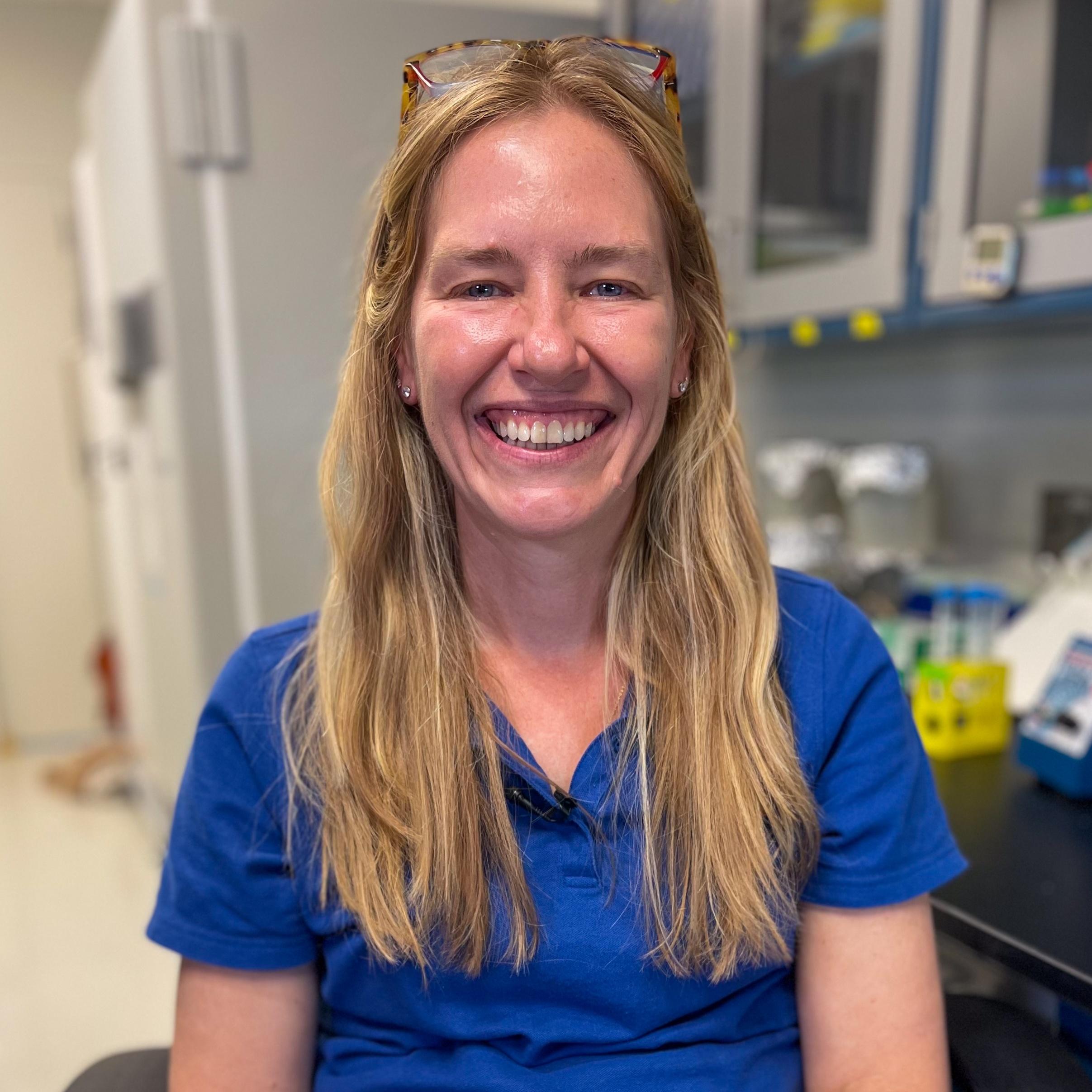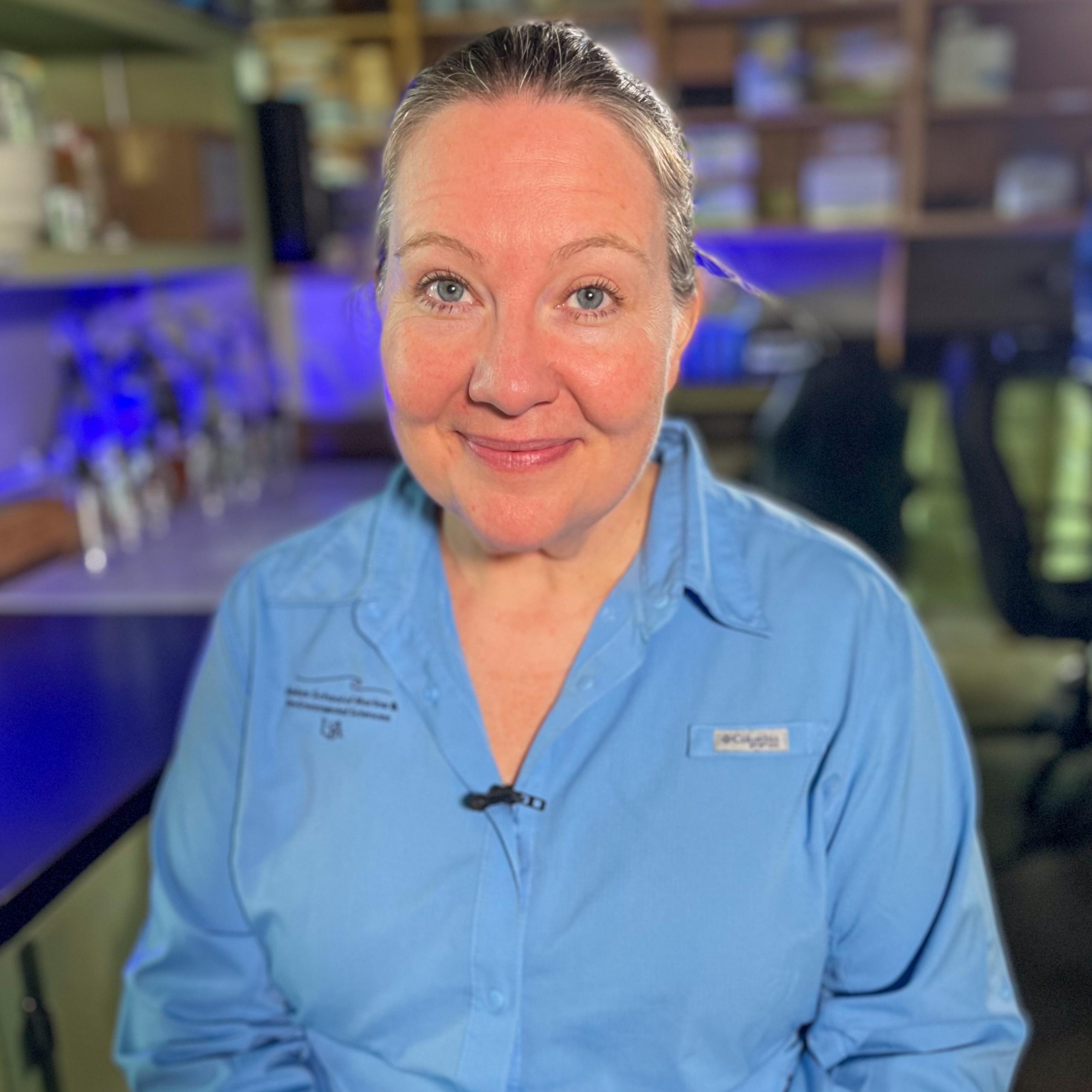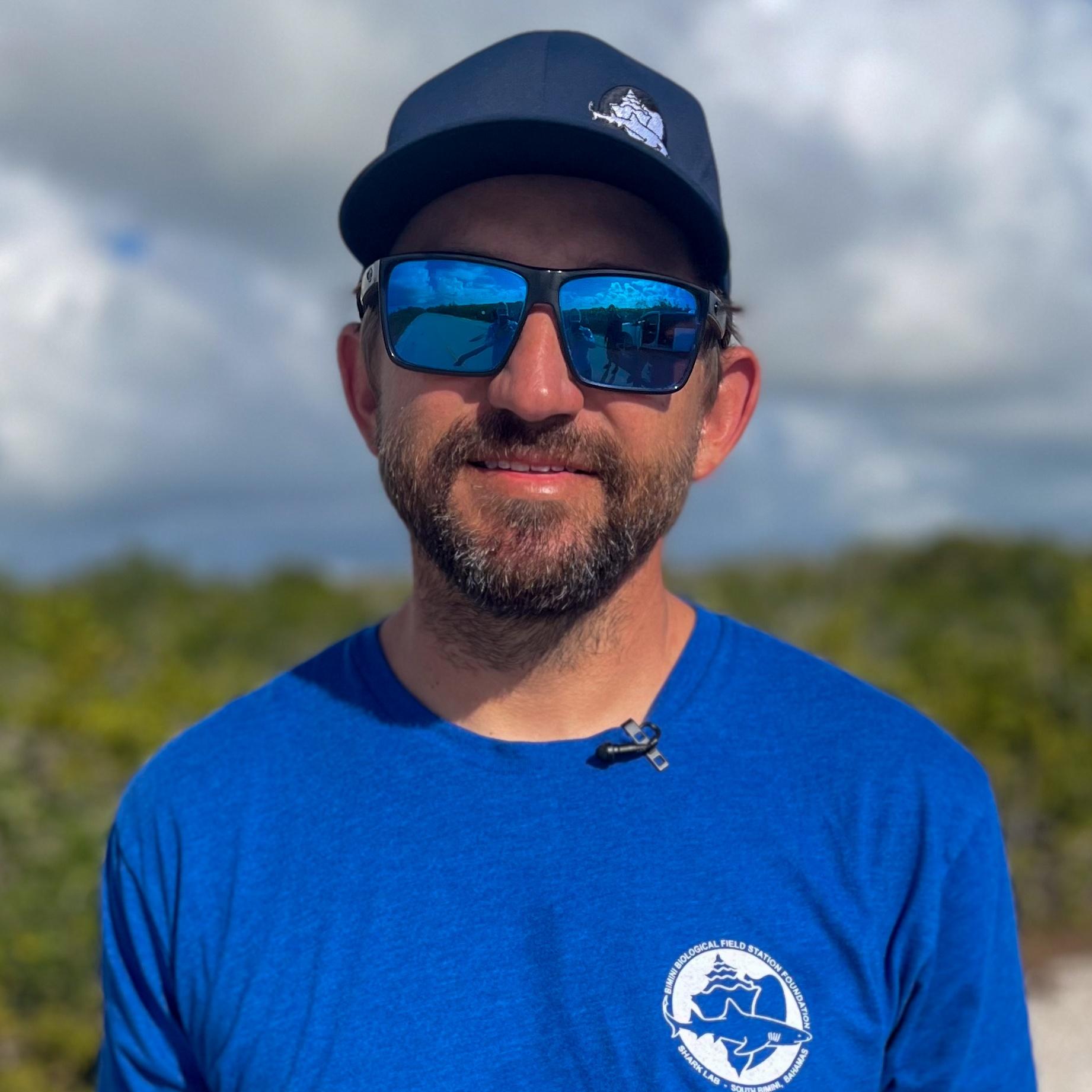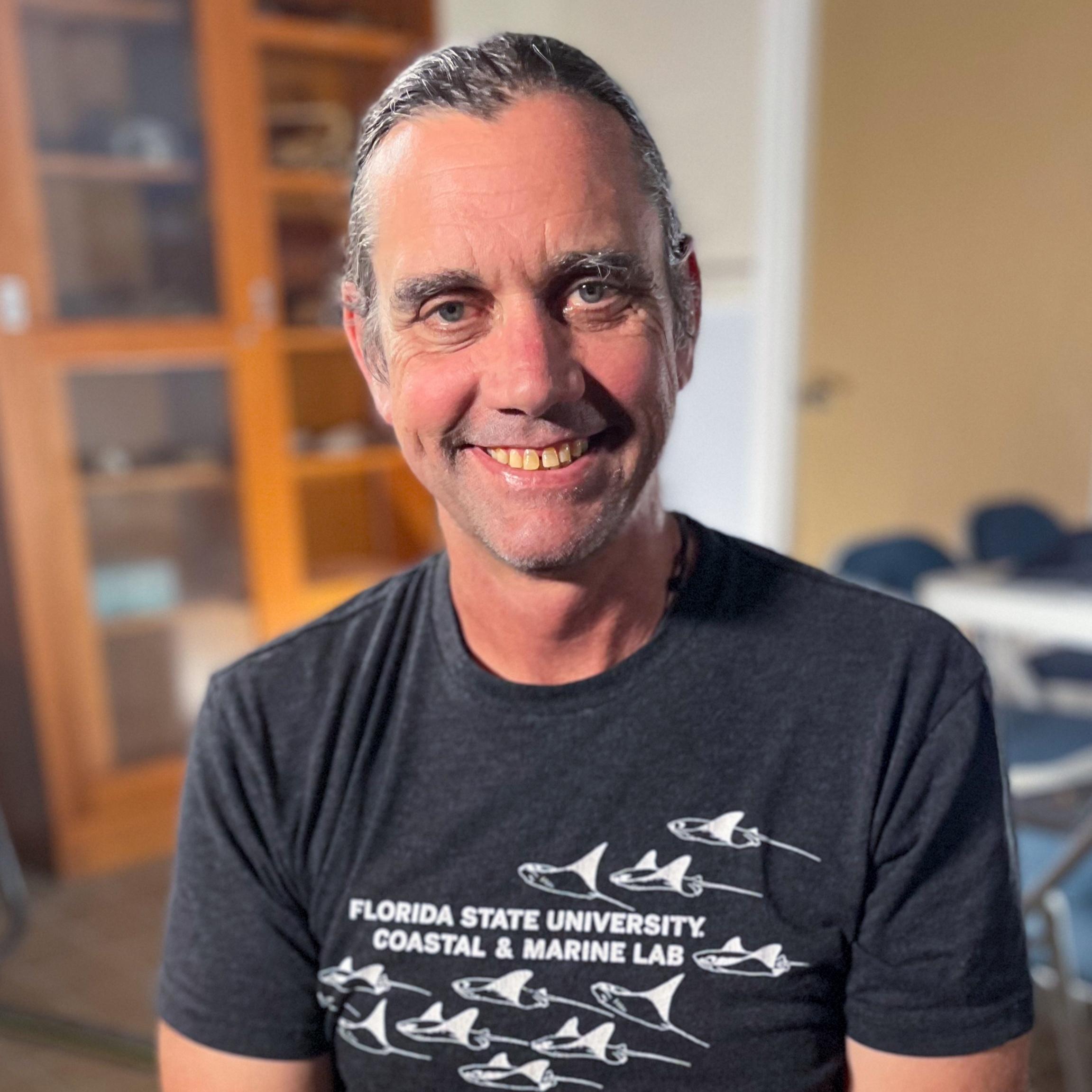Episode Photos
In late 2023 and into the spring of 2024, fishermen in the Florida Keys witnessed an unusual phenomenon. More than 80 species of fish were observed spinning and acting extremely disoriented. While the vast majority of fishes seemed to eventually recover, it was lethal for one iconic South Florida species - the endangered smalltooth sawfish.
Members of the Lower Keys Guide Association, like Captain Andrew Tipler (foreground), assisted researchers like Ross Boucek, Ph.D., with the Bonefish & Tarpon Trust, in studying this unusual spinning behavior.
Research conducted by the Bonefish & Tarpon Trust discovered that about 75% of jack crevalles showed symptoms when captured.
The same research also revealed that only 10-20% of mangrove snapper were affected when captured, and they were able to recover within approximately 10 minutes.
Around the same time the Bonefish & Tarpon Trust became aware of the spinning fish, concerned citizens were also reaching out to the Florida Fish and Wildlife Conservation Commission’s Fish Kill Hotline.
Keys-based Florida Fish and Wildlife Conservation Commission staff collected fish and water samples to determine the cause of the spinning behavior.
Staff at the FWC Fish and Wildlife Research Institute in St. Petersburg, Florida, conducted fish necropsies to determine what caused the unusual spinning behavior.
Videographer Felipe Marrou films a researcher with FWC's Harmful Algal Bloom Group who is analyzing a water sample.
Researchers use a variety of tools to identify single-celled algae. A scanning electron microscope provides greater detail than a typical light microscope.
Kate Hubbard, Ph.D. is also using molecular methods to identify algae species by their DNA.
A researcher from Florida Gulf Coast University's Water School collects an algae sample in the Florida Keys.
A team of researchers from Florida Gulf Coast University's Water School collect algae samples in the Florida Keys.
Florida Gulf Coast University Research Lab Coordinator Rachael Schinbeckler collects a water sample in the Florida Keys.
Samples collected in the Florida Keys by researchers from Florida Gulf Coast University's Water School will be analyzed back in the lab in Fort Myers, Florida.
Florida Gulf Coast University researcher Tynisha Martin looks at dinoflagellates under the microscope.
Alison Robertson, Ph.D. and her collaborators share a large microalgae culture collection that allows experts to conduct experiments.
Alison Robertson, Ph.D. holds a microalgae sample from her large collection.
The Changing Seas crew films a researcher at the University of South Alabama who is preparing a field sample for analysis.
Alison Robertson, Ph.D. points at a variety of microalgae species recorded by a flow cam, an instrument that captures high-resolution digital images of microscopic particles as they flow through the device, allowing for the identification, measurement, and classification of these particles.
Once toxins have been isolated and identified, Alison Robertson, Ph.D. conducts multi-stressor experiments on fish to see if she can induce spinning behavior.
Researchers can adjust a variety of parameters during multi-stressor experiments on fish.
It’s not just bony fishes that were affected by this event. Researchers with the Bimini Shark Lab looked at the impact on different shark species.
Scientists from the Bimini Shark lab set longlines to catch sharks for their research.
Researchers with the Bimini Shark Lab capture a hammerhead shark.
Researchers studying all types of fishes use surgically implanted acoustic tags to study the movement of the animals. These tags ping off receivers like this one, which is part of a large network of receivers along the coast.
Researchers with FSU's Coastal and Marine Laboratory study adult smalltooth sawfish in the Florida Keys.
Dean Grubbs, Ph.D. and his team have been studying adult sawfish in the Florida Keys and Everglades National Park since 2011.
Commercial fisherman Glenn Herbert Hewlett Jr. catches mullet for the Florida Fish and Wildlife Conservation Commission. Fishermen reported spinning fish in the past, but the Florida Keys had never experienced a spinning event of this magnitude.
